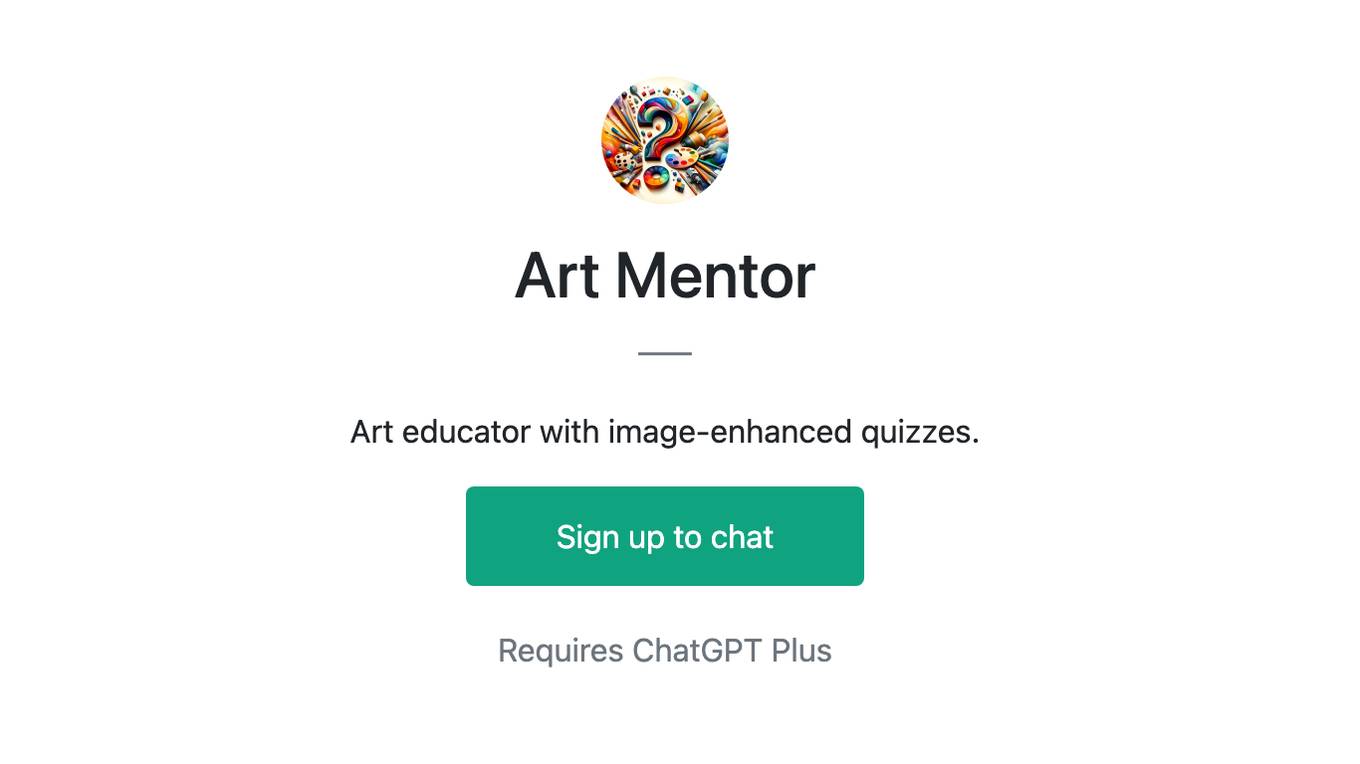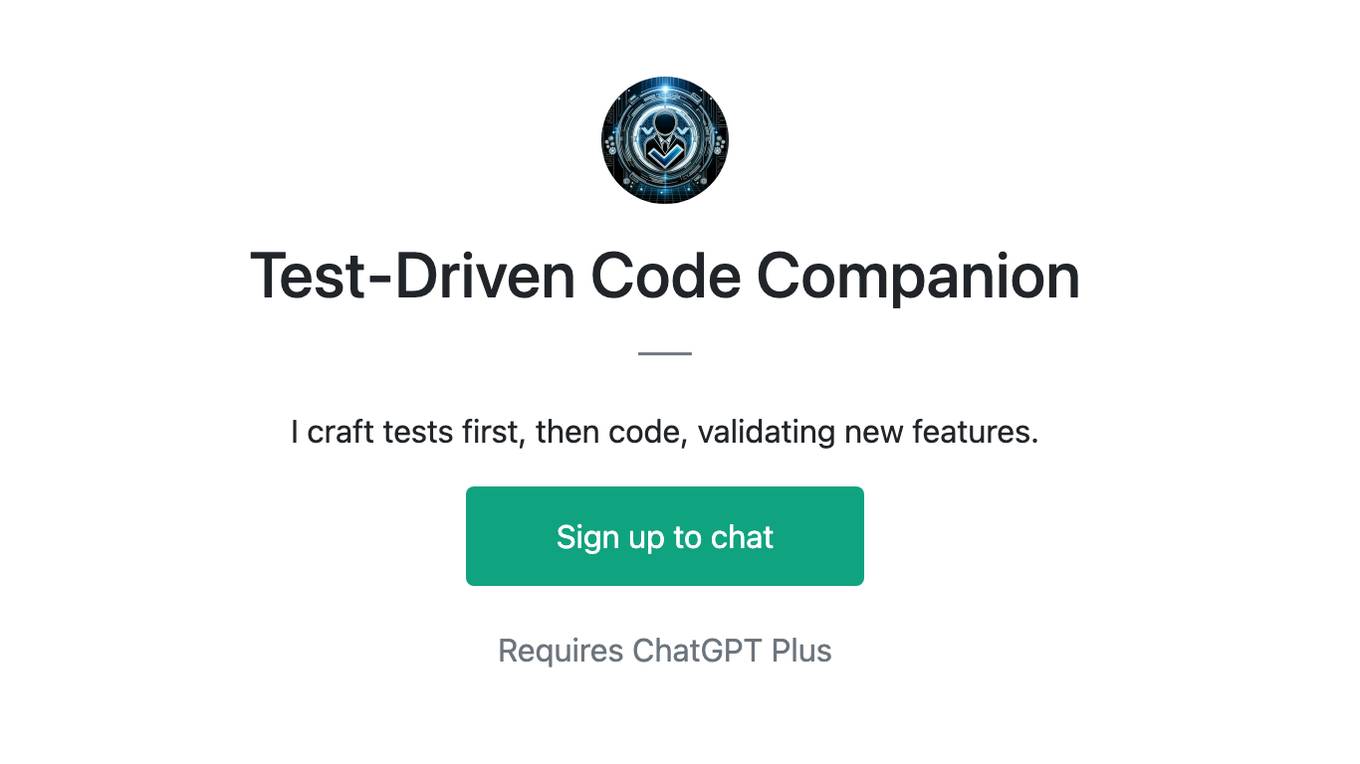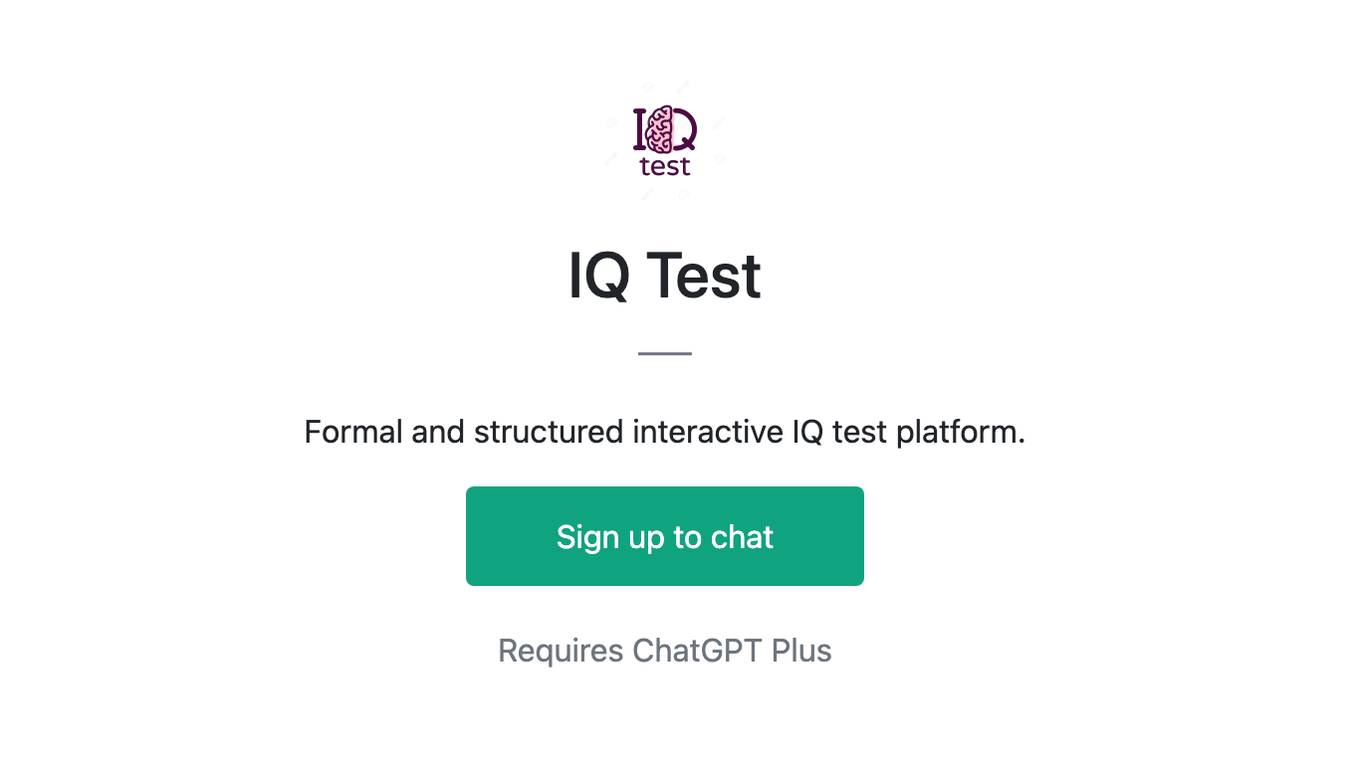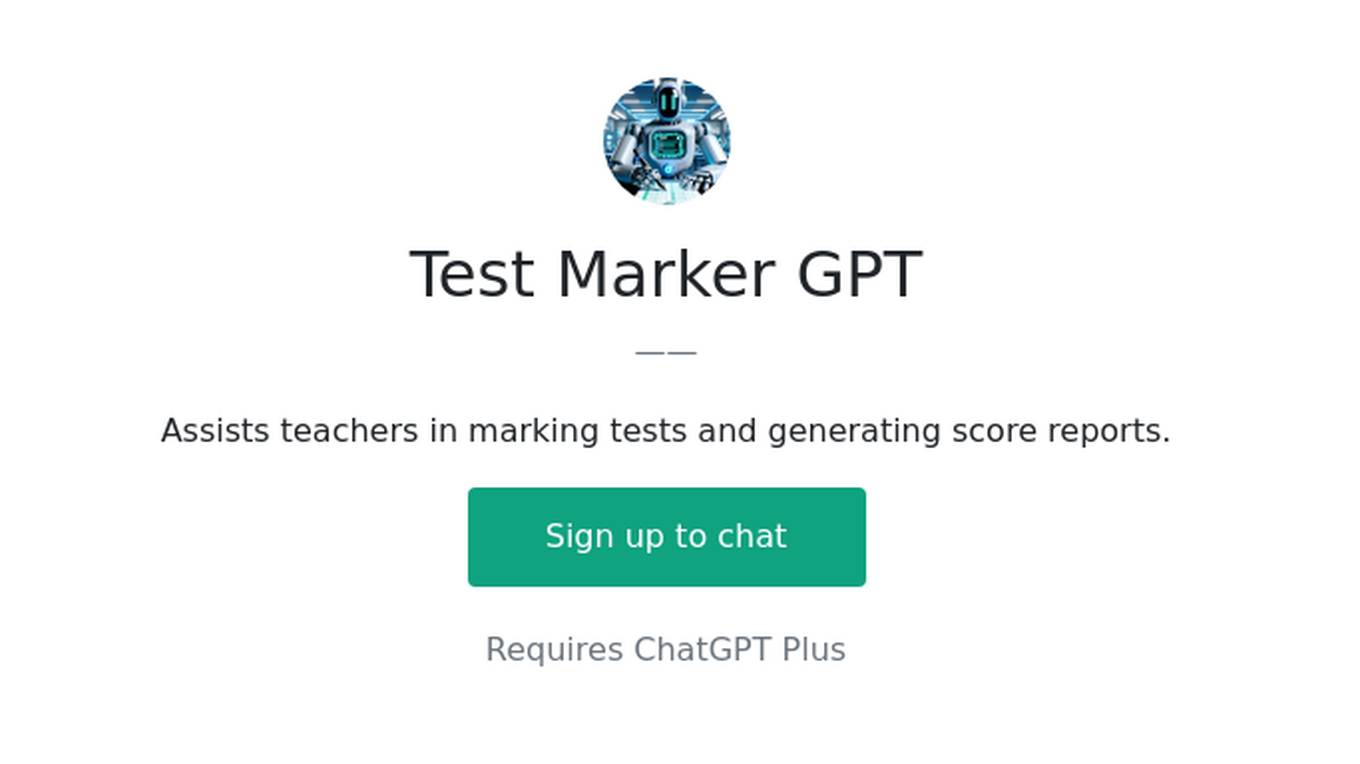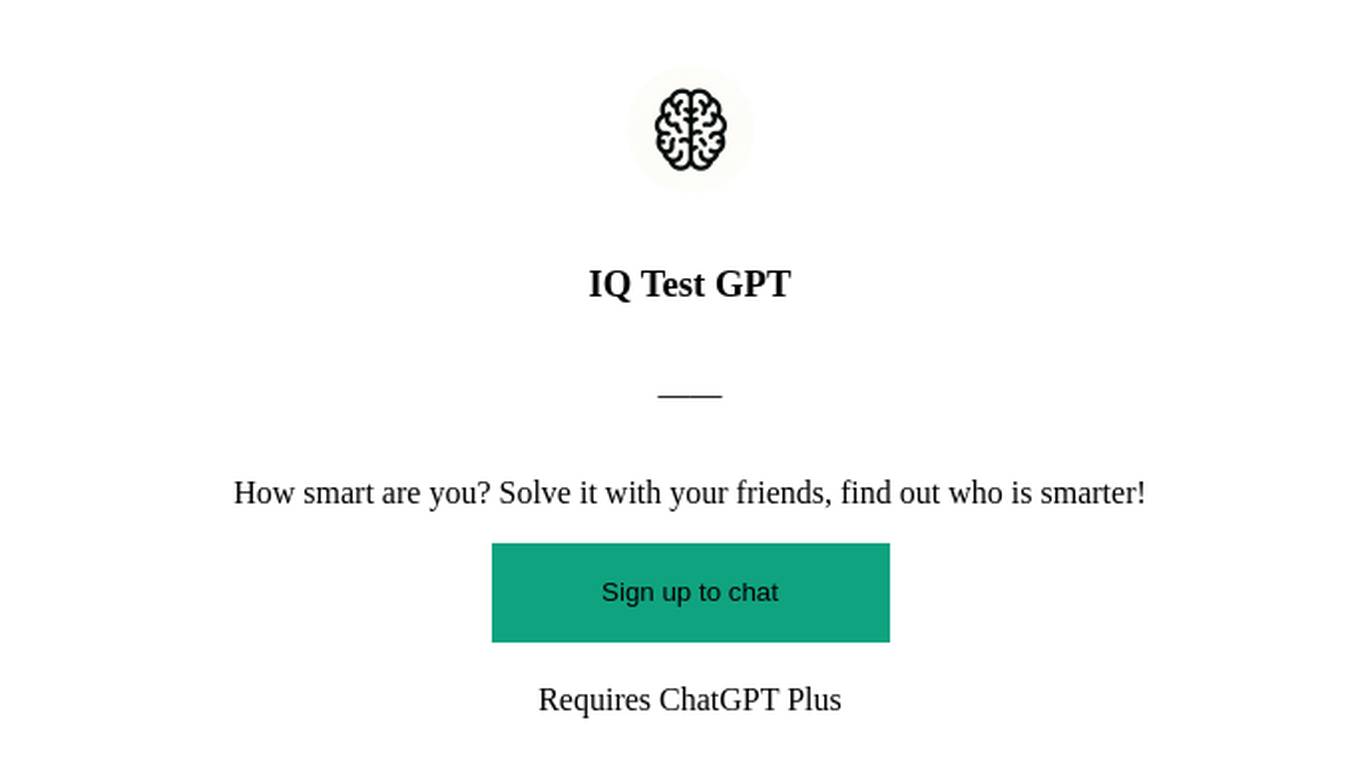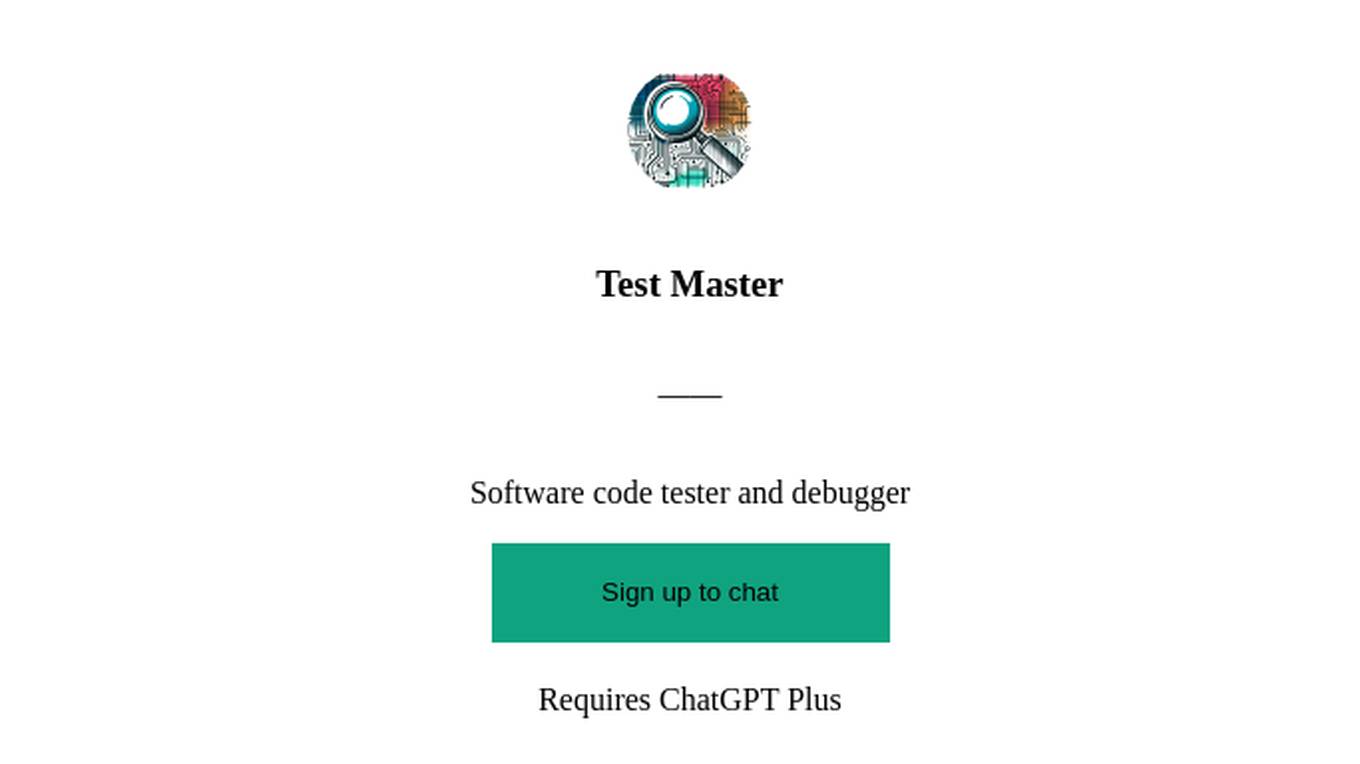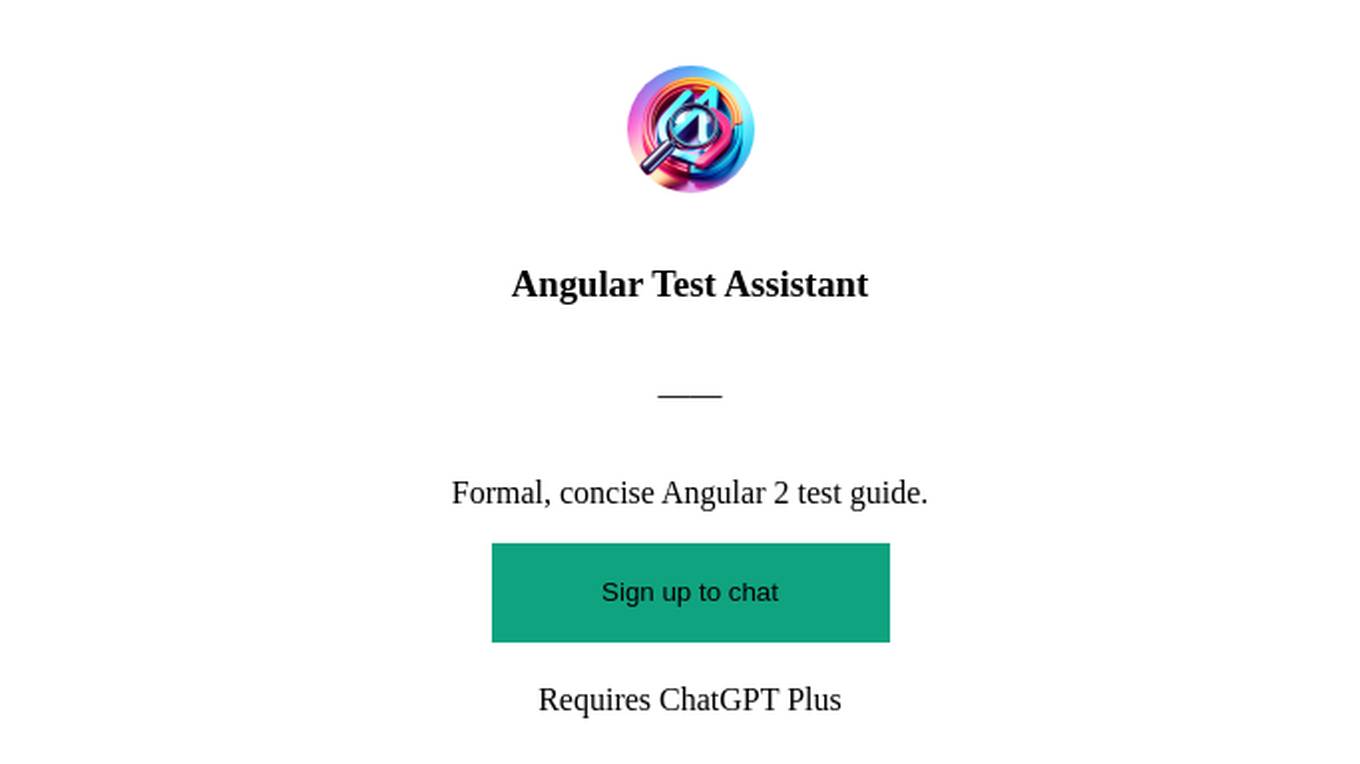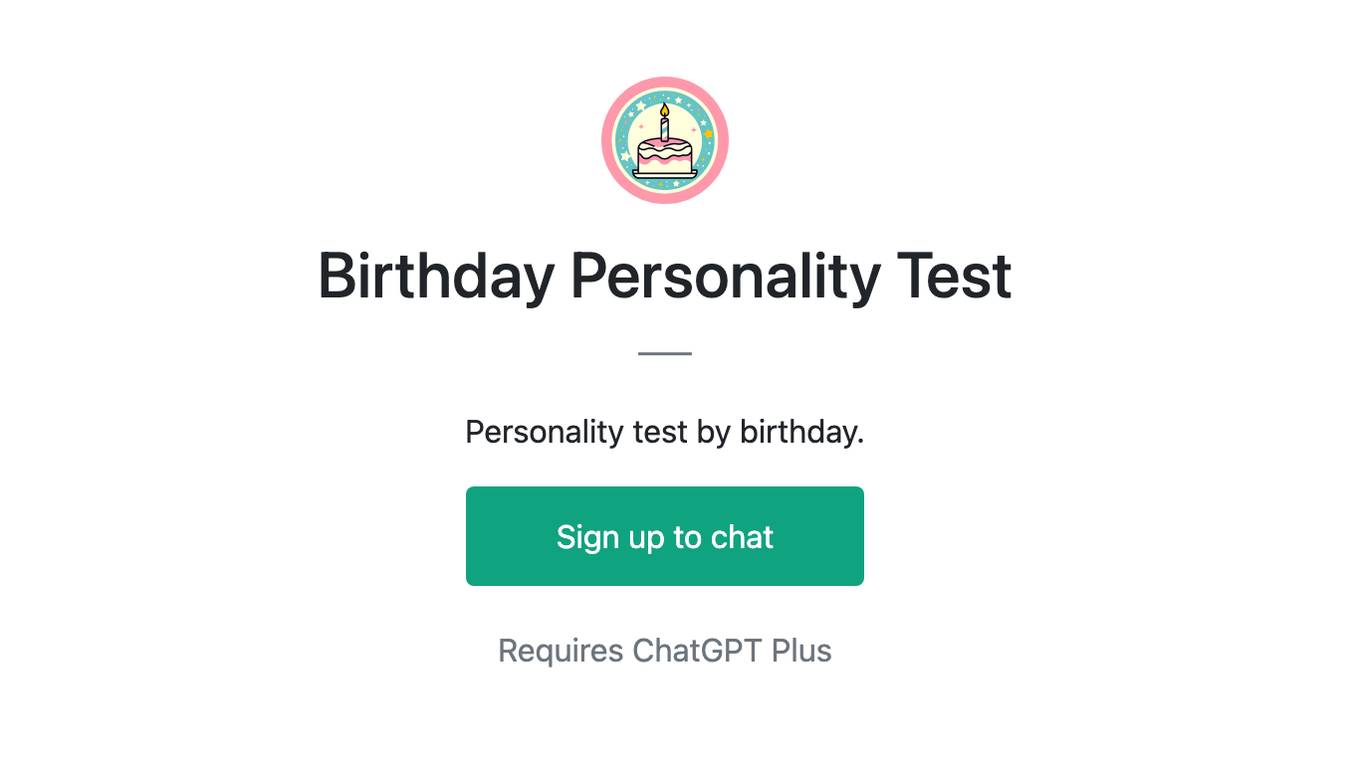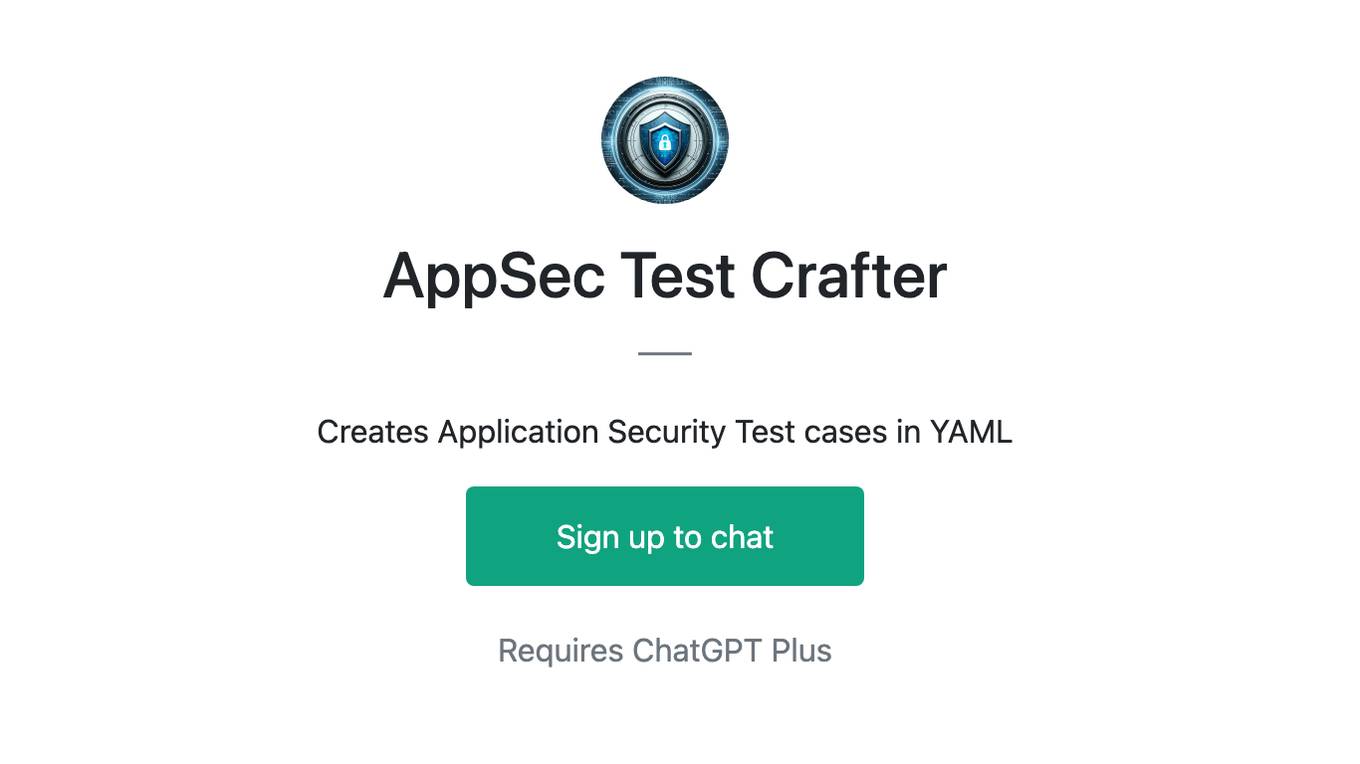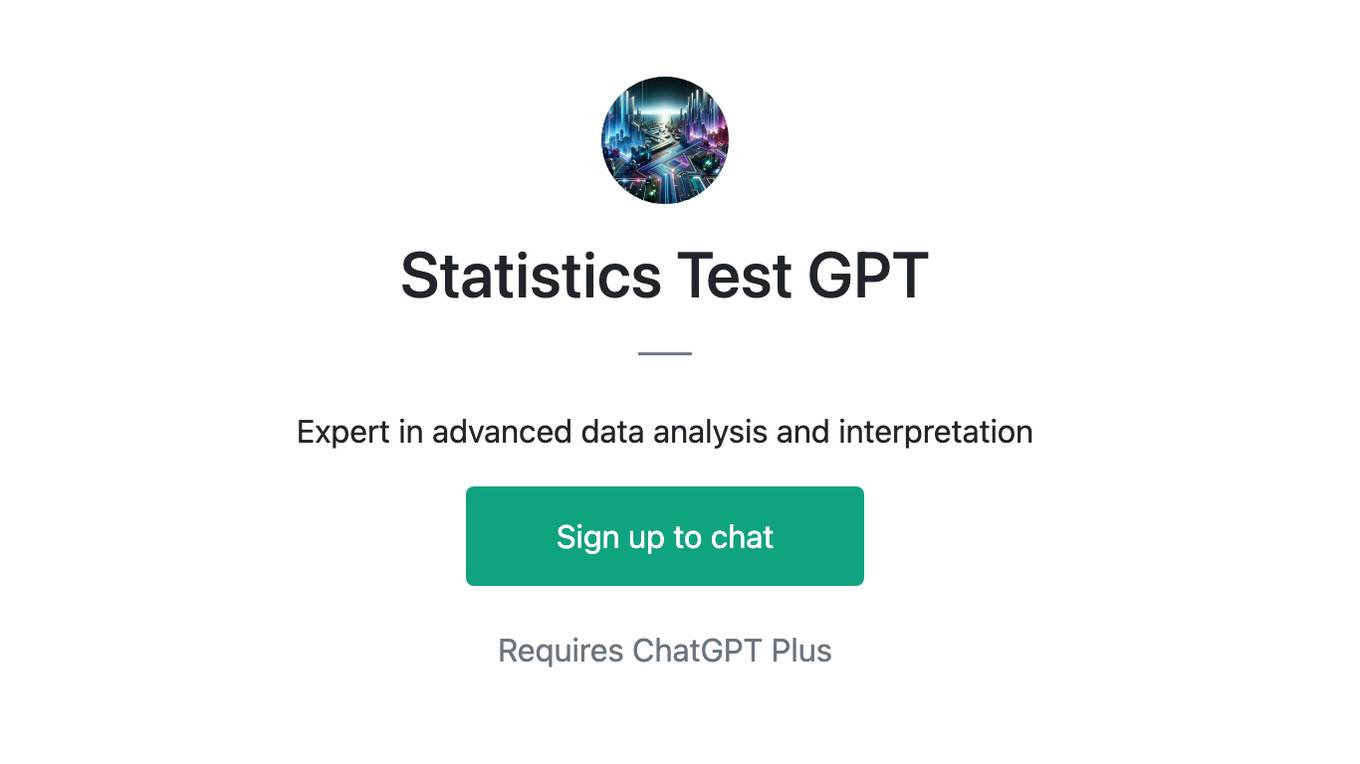Best AI tools for< Test Different Models >
20 - AI tool Sites
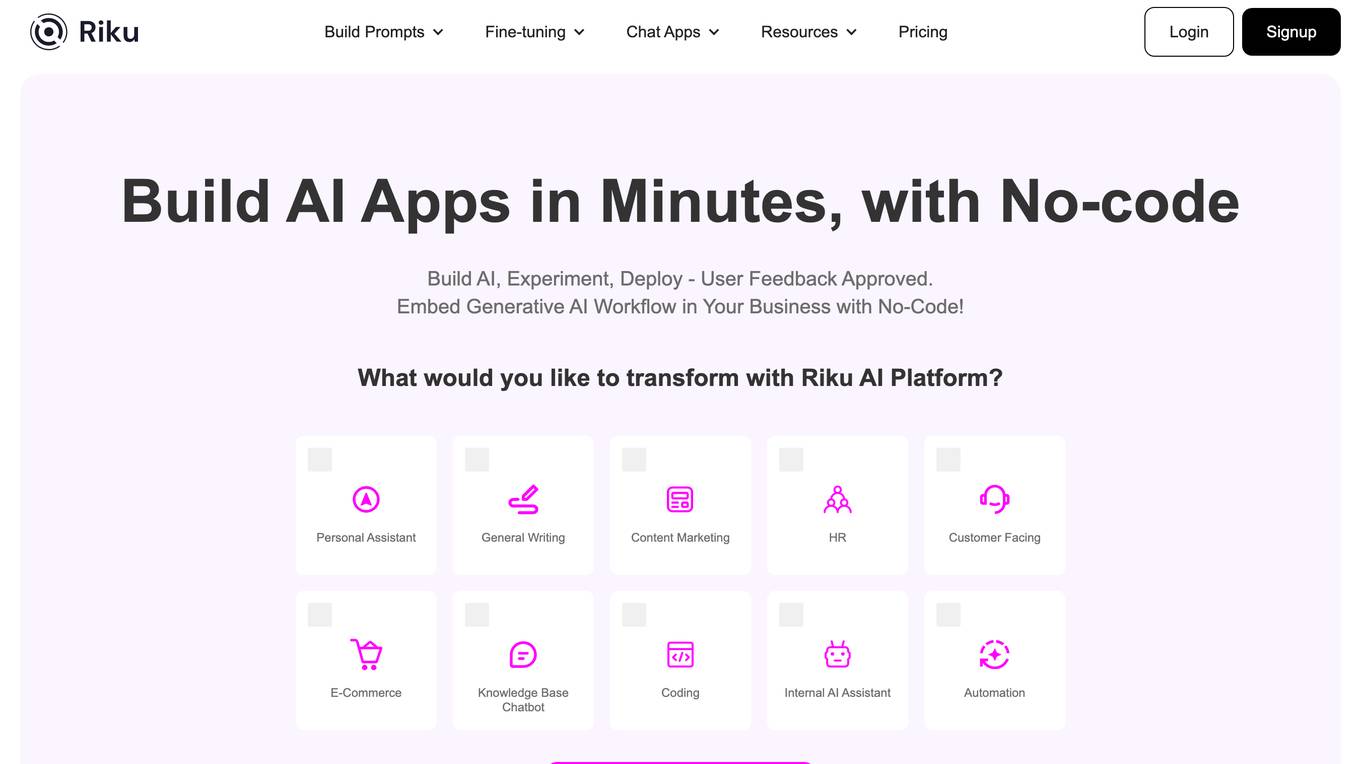
Riku
Riku is a no-code platform that allows users to build and deploy powerful generative AI for their business. With access to over 40 industry-leading LLMs, users can easily test different prompts to find just the right one for their needs. Riku's platform also allows users to connect siloed data sources and systems together to feed into powerful AI applications. This makes it easy for businesses to automate repetitive tasks, test ideas rapidly, and get answers in real-time.
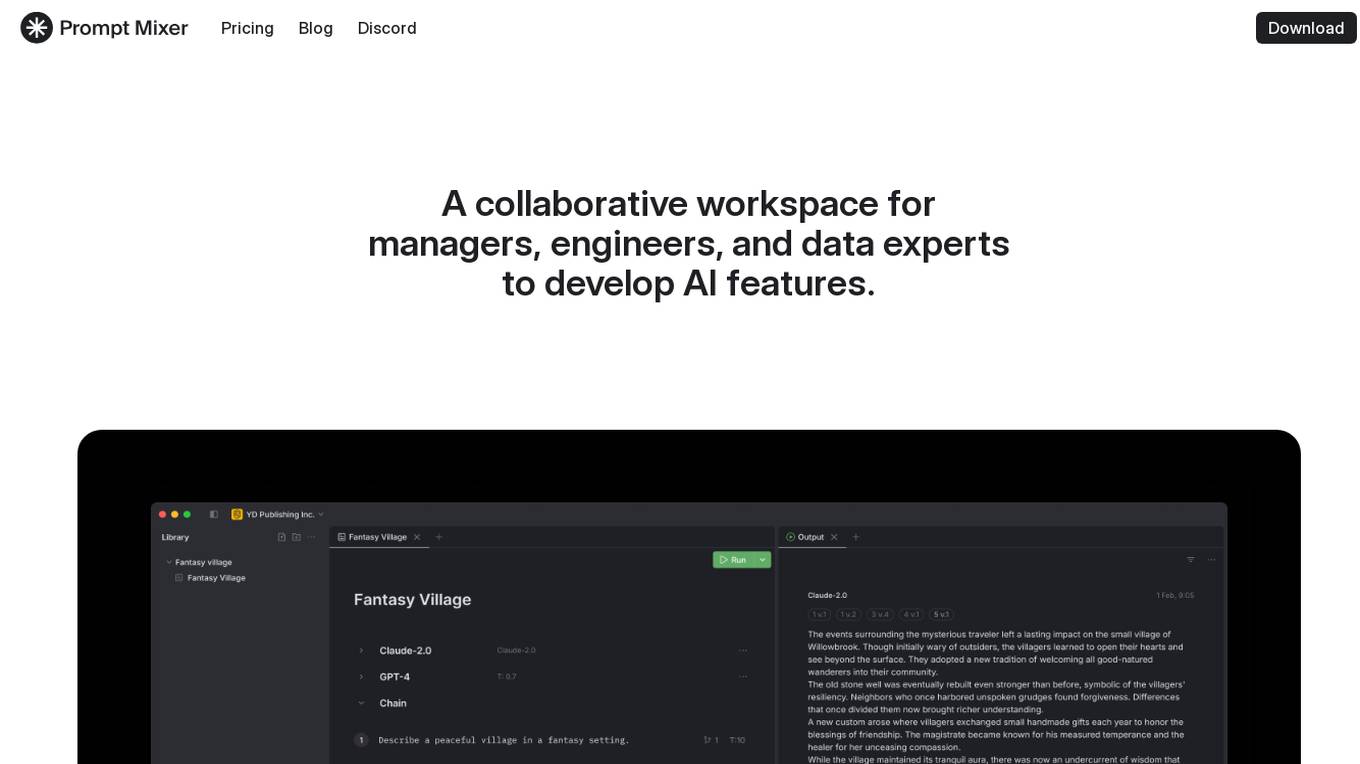
Prompt Mixer
Prompt Mixer is a collaborative workspace for managers, engineers, and data experts to develop AI features. It is a desktop app that allows users to keep, version, and test chains of prompts with different ML models and connections. Users can create prompts using Markdown and enhance them with AI. The app also provides suggestions to improve prompts and can even improve them automatically using AI.
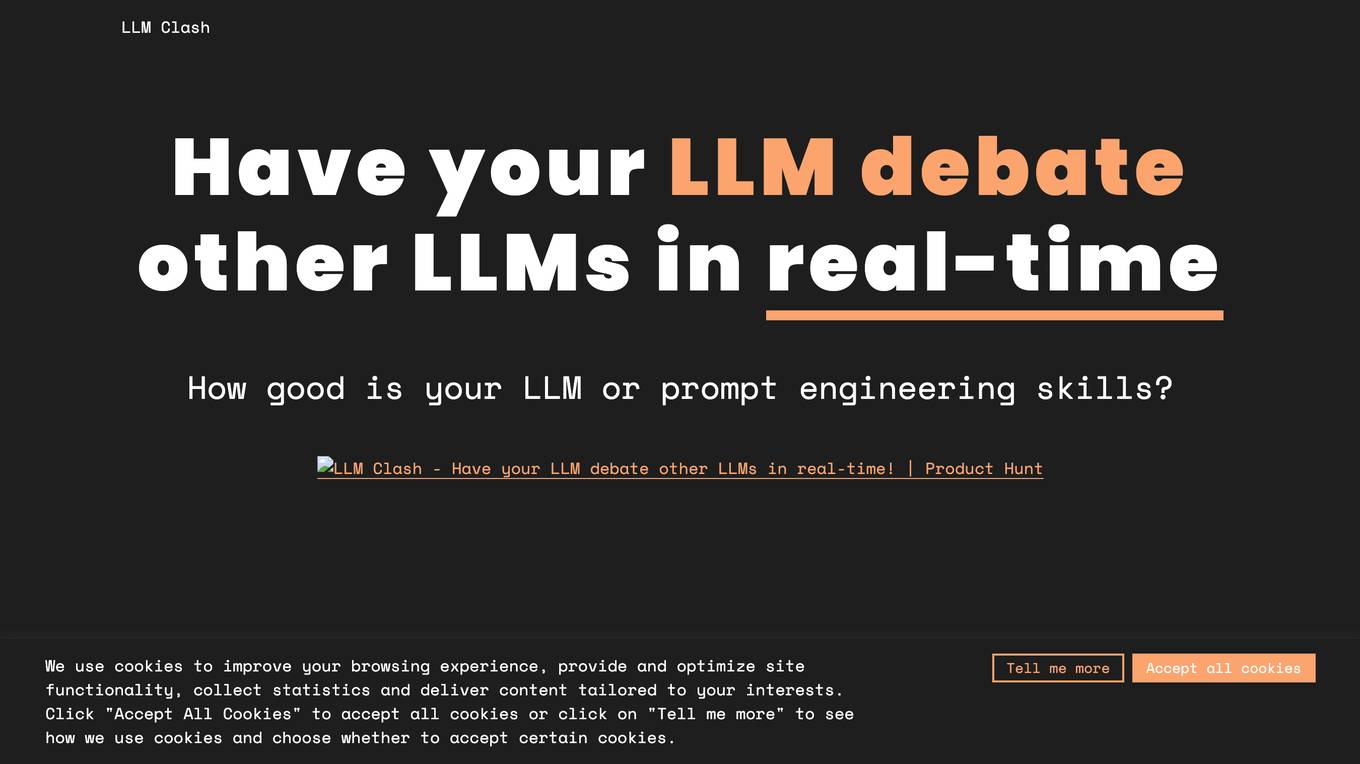
LLM Clash
LLM Clash is a web-based application that allows users to compare the outputs of different large language models (LLMs) on a given task. Users can input a prompt and select which LLMs they want to compare. The application will then display the outputs of the LLMs side-by-side, allowing users to compare their strengths and weaknesses.
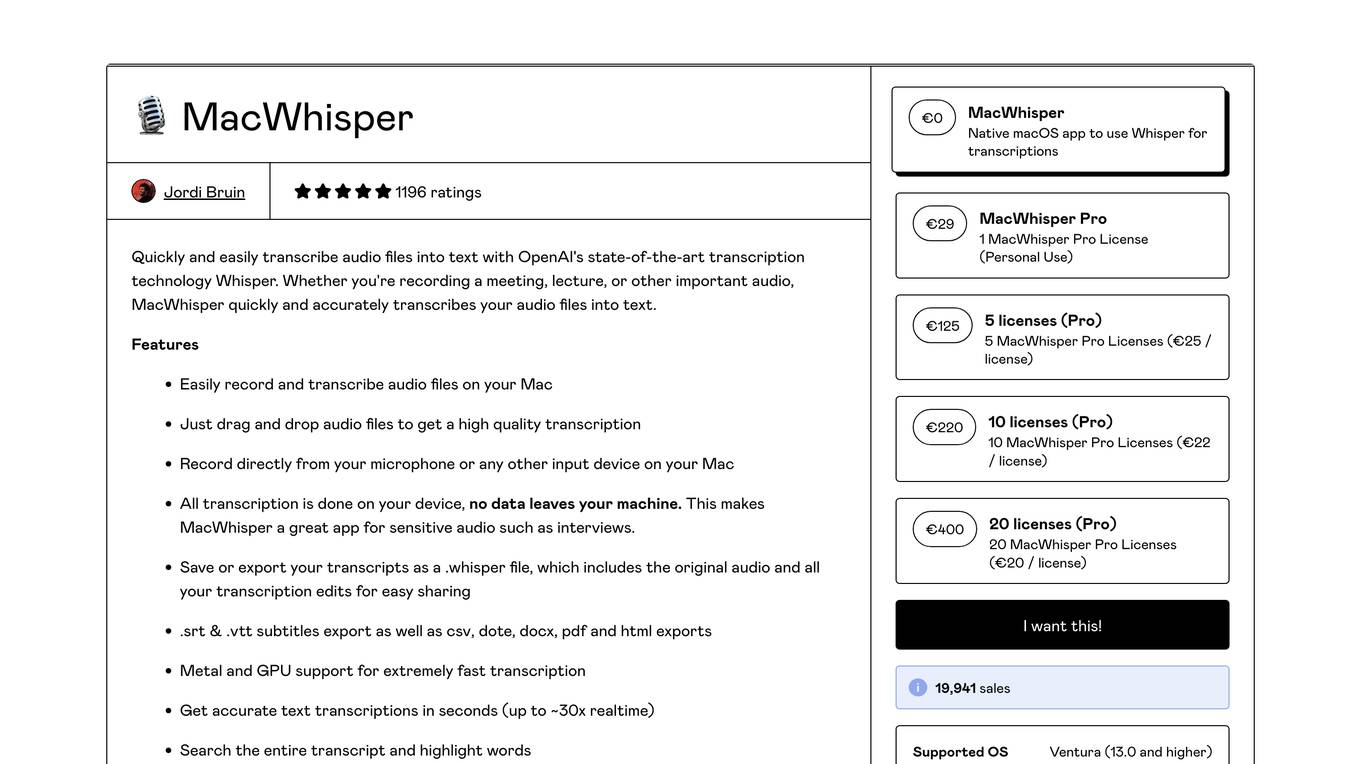
MacWhisper
MacWhisper is a native macOS application that utilizes OpenAI's Whisper technology for transcribing audio files into text. It offers a user-friendly interface for recording, transcribing, and editing audio, making it suitable for various use cases such as transcribing meetings, lectures, interviews, and podcasts. The application is designed to protect user privacy by performing all transcriptions locally on the device, ensuring that no data leaves the user's machine.
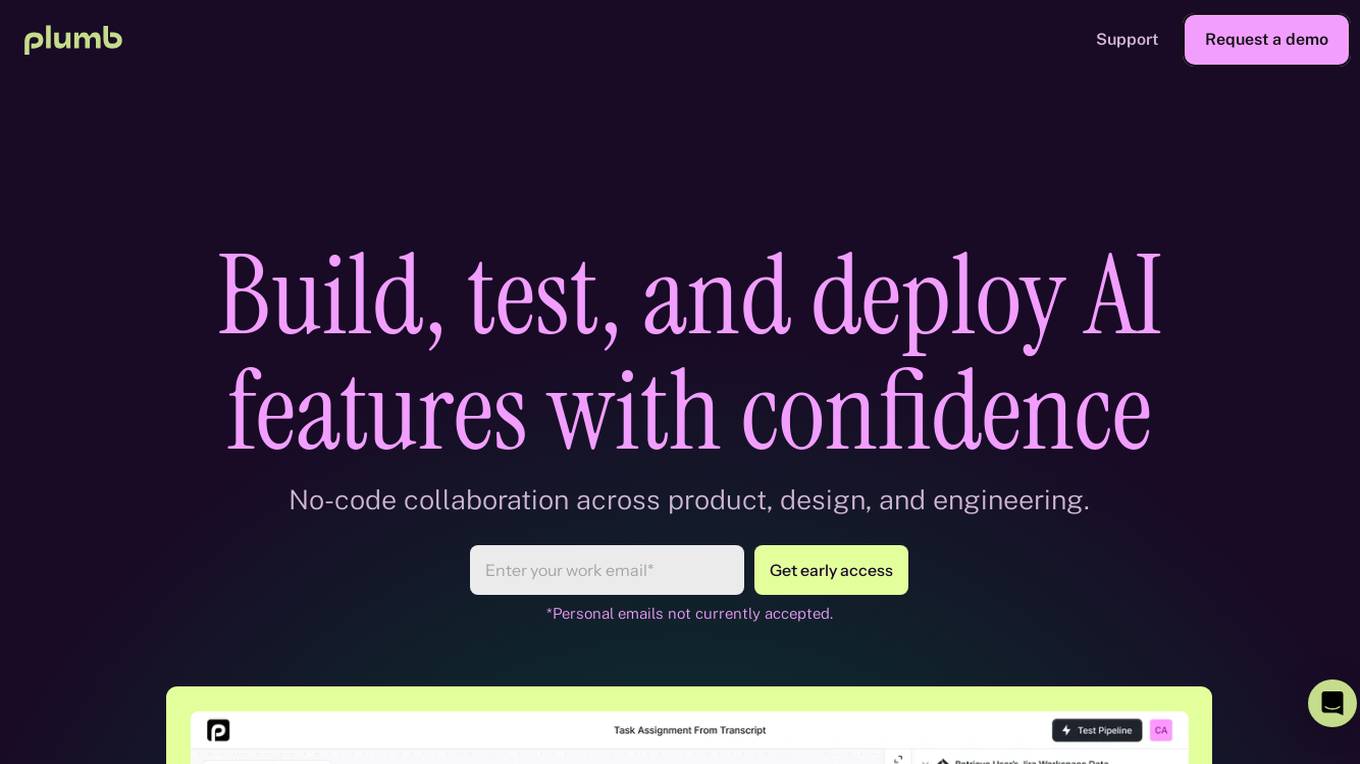
Plumb
Plumb is a no-code, node-based builder that empowers product, design, and engineering teams to create AI features together. It enables users to build, test, and deploy AI features with confidence, fostering collaboration across different disciplines. With Plumb, teams can ship prototypes directly to production, ensuring that the best prompts from the playground are the exact versions that go to production. It goes beyond automation, allowing users to build complex multi-tenant pipelines, transform data, and leverage validated JSON schema to create reliable, high-quality AI features that deliver real value to users. Plumb also makes it easy to compare prompt and model performance, enabling users to spot degradations, debug them, and ship fixes quickly. It is designed for SaaS teams, helping ambitious product teams collaborate to deliver state-of-the-art AI-powered experiences to their users at scale.
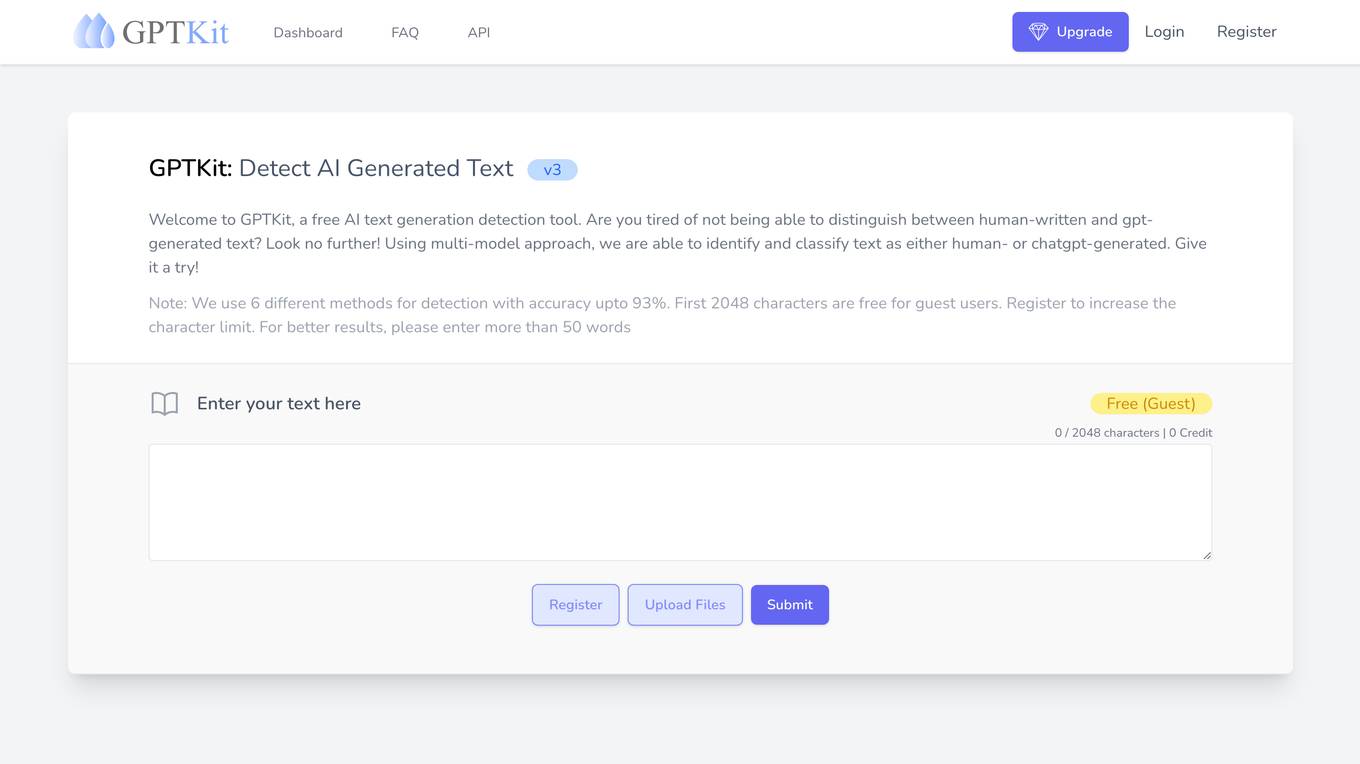
GPTKit
GPTKit is a free AI text generation detection tool that utilizes six different AI-based content detection techniques to identify and classify text as either human- or AI-generated. It provides reports on the authenticity and reality of the analyzed content, with an accuracy of approximately 93%. The first 2048 characters in every request are free, and users can register for free to get 2048 characters/request.
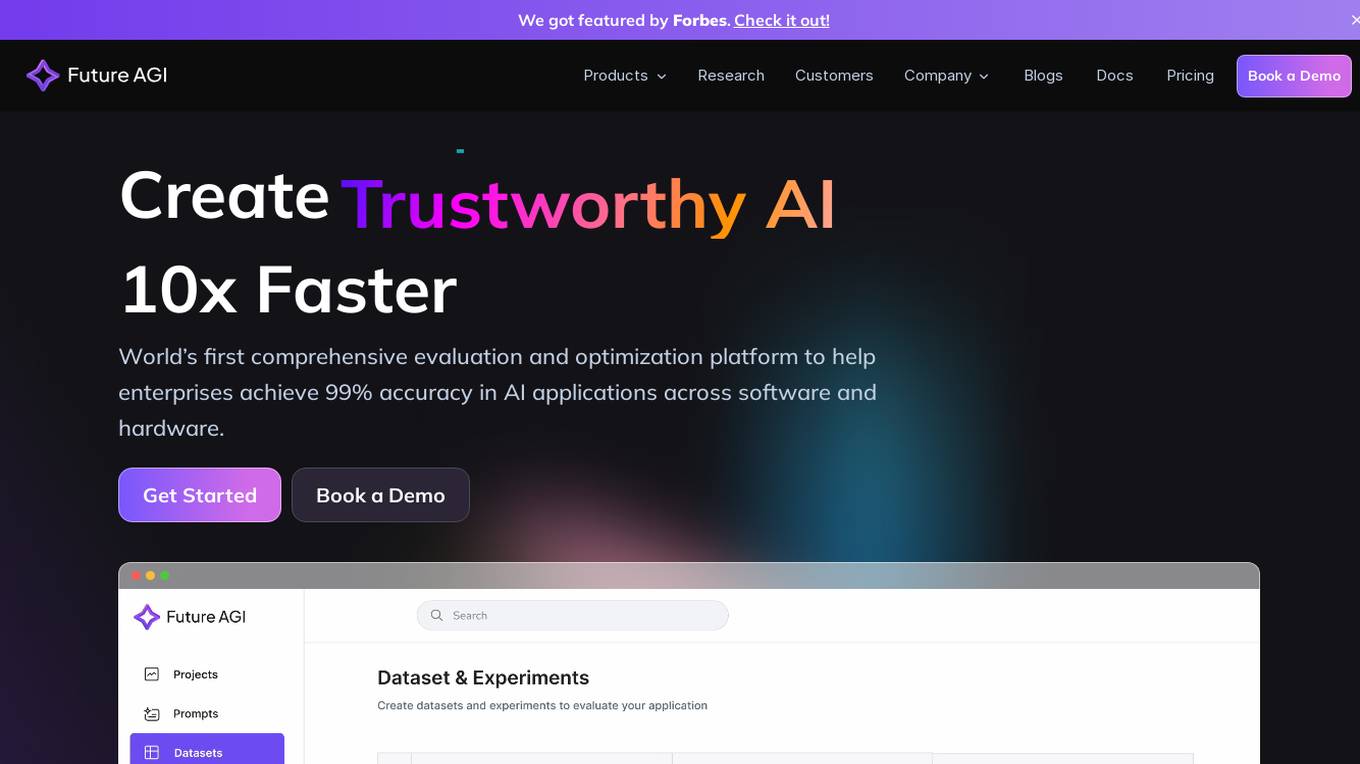
Future AGI
Future AGI is a revolutionary AI data management platform that aims to achieve 99% accuracy in AI applications across software and hardware. It provides a comprehensive evaluation and optimization platform for enterprises to enhance the performance of their AI models. Future AGI offers features such as creating trustworthy, accurate, and responsible AI, 10x faster processing, generating and managing diverse synthetic datasets, testing and analyzing agentic workflow configurations, assessing agent performance, enhancing LLM application performance, monitoring and protecting applications in production, and evaluating AI across different modalities.
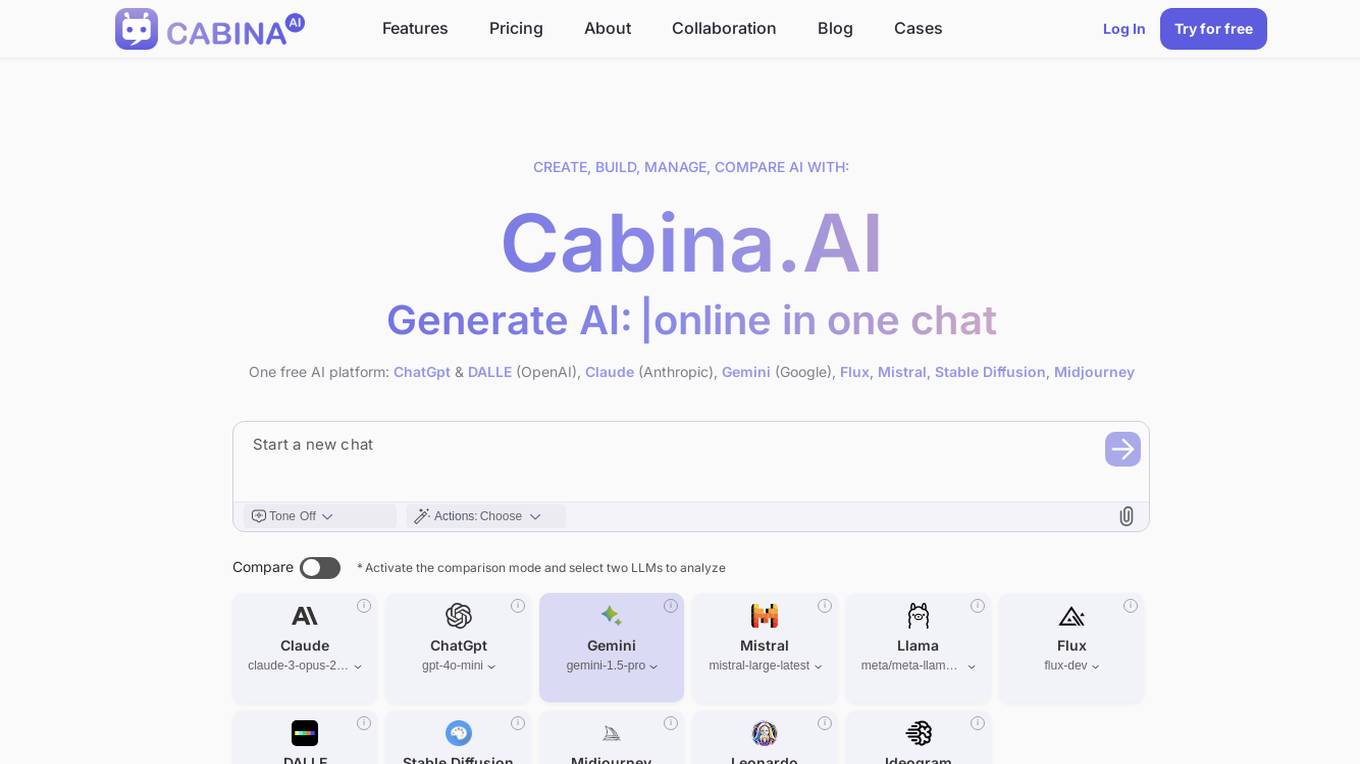
Cabina.AI
Cabina.AI is a free AI platform that allows users to generate content, text, and images online through a single chat interface. It offers a range of AI models such as ChatGpt, DALLE, Claude, Gemini, Flux, Mistral, and more for tasks like content creation, research, and real-time task solving. Users can access different LLMs, compare results, and find the best solutions faster. Cabina.AI also provides personalized actions, organization of chats, and the ability to track various data points. With flexible pricing plans and a friendly community, Cabina.AI aims to be a universal tool for research and content creation.

LongHair AI
LongHair AI is a free AI-powered hairstyle changer that allows users to try on various long hairstyles in seconds. Users can upload their photo and experiment with trending, classic, or creative long hair designs. The platform offers over 40 hairstyles to choose from, providing instant results without the need for sign-up. LongHair AI specializes in long hairstyles, offering a realistic preview of how different styles would look before committing to a haircut or extension. The tool is user-friendly, free to use, and ensures privacy protection by automatically deleting uploaded photos after 24 hours.
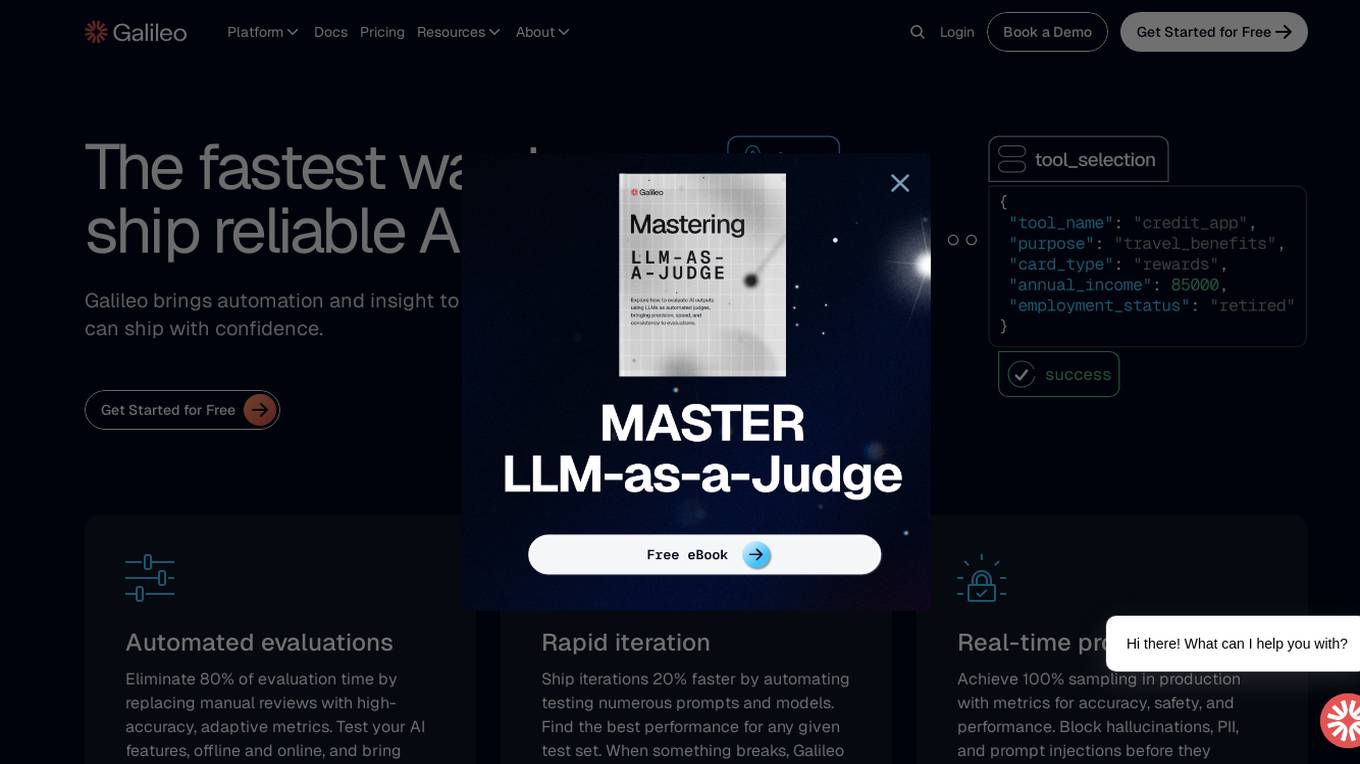
Galileo AI
Galileo AI is a platform that offers automated evaluations for AI applications, bringing automation and insight to AI evaluations to ensure reliable and confident shipping. It helps in eliminating 80% of evaluation time by replacing manual reviews with high-accuracy metrics, enabling rapid iteration, achieving real-time protection, and providing end-to-end visibility into agent completions. Galileo also allows developers to take control of AI complexity, de-risk AI in production, and deploy AI applications flexibly across different environments. The platform is trusted by enterprises and loved by developers for its accuracy, low-latency, and ability to run on L4 GPUs.

BugFree.ai
BugFree.ai is an AI-powered platform designed to help users practice system design and behavior interviews, similar to Leetcode. The platform offers a range of features to assist users in preparing for technical interviews, including mock interviews, real-time feedback, and personalized study plans. With BugFree.ai, users can improve their problem-solving skills and gain confidence in tackling complex interview questions.
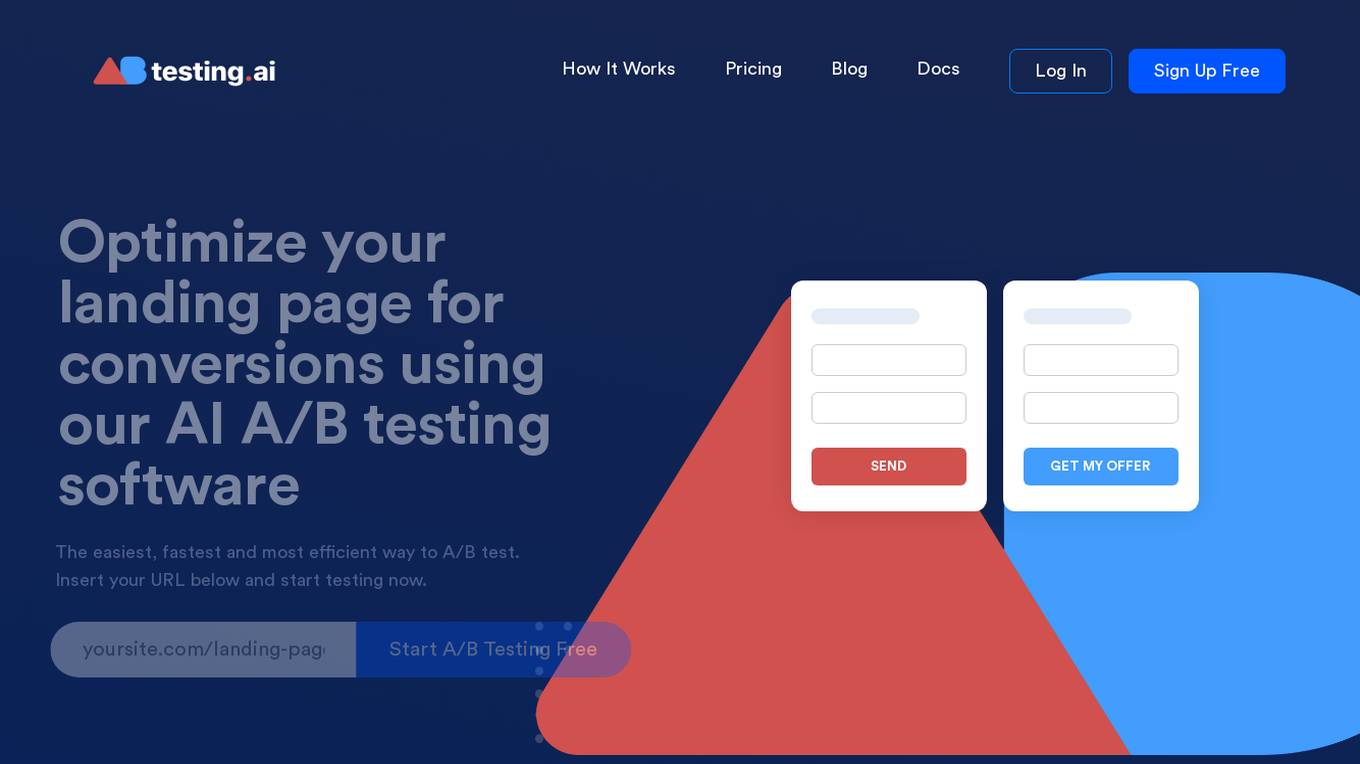
ABtesting.ai
ABtesting.ai is an AI-powered A/B testing software that helps businesses optimize their landing pages for conversions. It uses GPT-3 to generate automated text suggestions for headlines, copy, and call to actions, saving businesses time and effort. The software also automatically chooses the best combinations of elements to show to users, boosting conversion rates in the process. ABtesting.ai is easy to use and requires no manual work, making it a great option for businesses of all sizes.
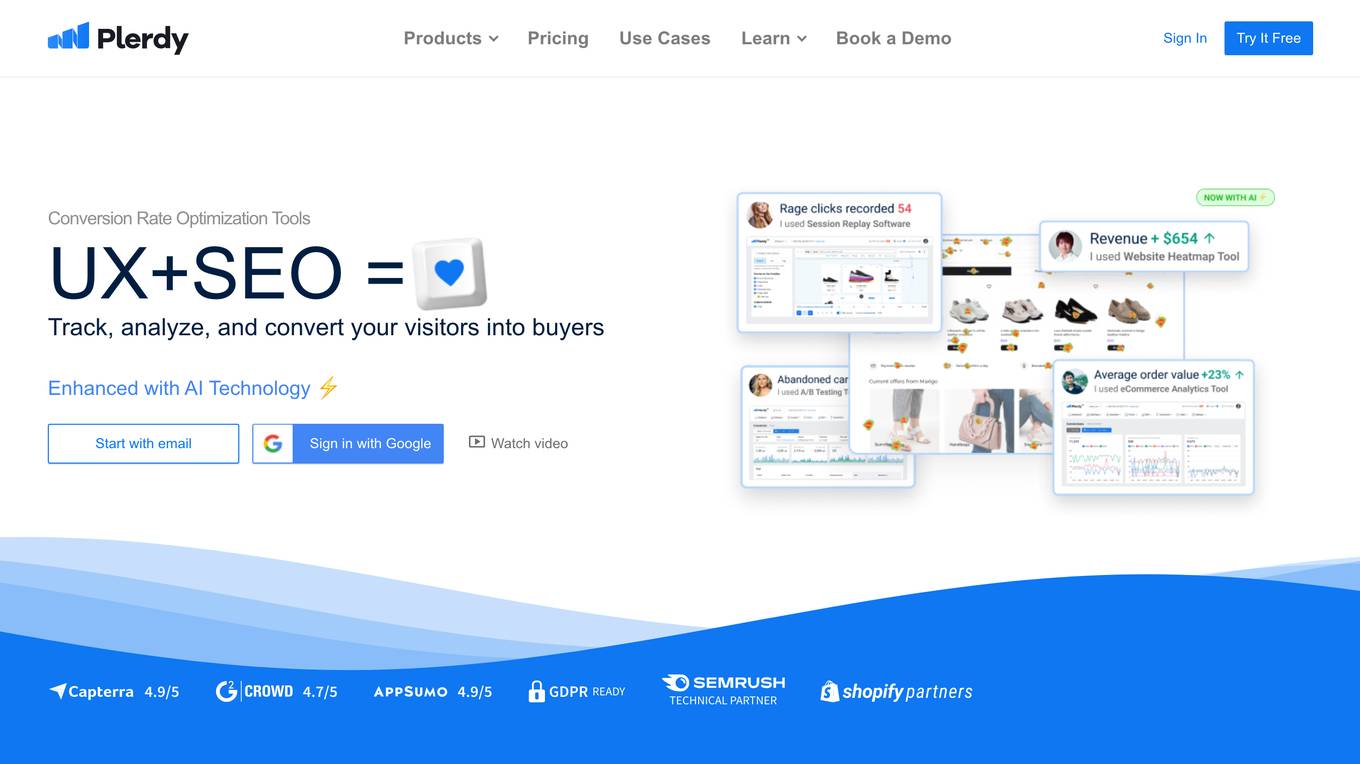
Plerdy
Plerdy is a comprehensive suite of conversion rate optimization tools that helps businesses track, analyze, and convert their website visitors into buyers. With a range of features including website heatmaps, session replay software, pop-up software, website feedback tools, and more, Plerdy provides businesses with the insights they need to improve their website's usability and conversion rates.

Deepshot
Deepshot is a dialogue generation and replacement software that allows users to create professional-looking videos with ease. It is fully customizable, allowing users to create unique content that will leave an everlasting impression on viewers. Deepshot is also cost-effective and time-saving, making it a great option for businesses and individuals who want to create high-quality videos without breaking the bank. With Deepshot, you can:

Deepshot
Deepshot is the world's first fully customizable dialogue generation and replacement software, allowing users to create professional-looking videos with ease. It offers intuitive user profiles for quick content generation and powerful shot editing tools to bring visions to life. Users can break language barriers, correct mistakes in videos, test different concepts, and translate dialogue effortlessly. Deepshot is designed for content creators, by content creators, to transform ideas into engaging videos without limitations.
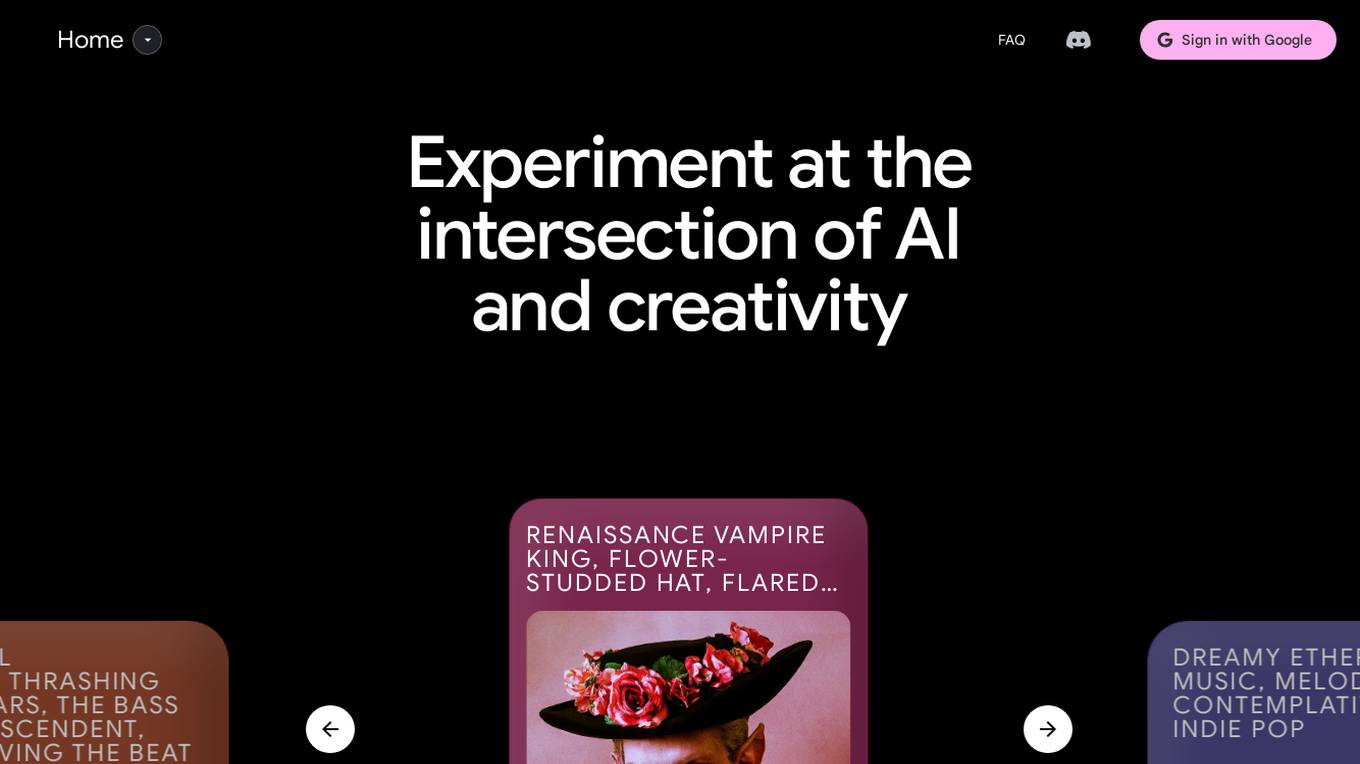
AI Test Kitchen
AI Test Kitchen is a website that provides a variety of AI-powered tools for creative professionals. These tools can be used to generate images, music, and text, as well as to explore different creative concepts. The website is designed to be a place where users can experiment with AI and learn how to use it to enhance their creative process.
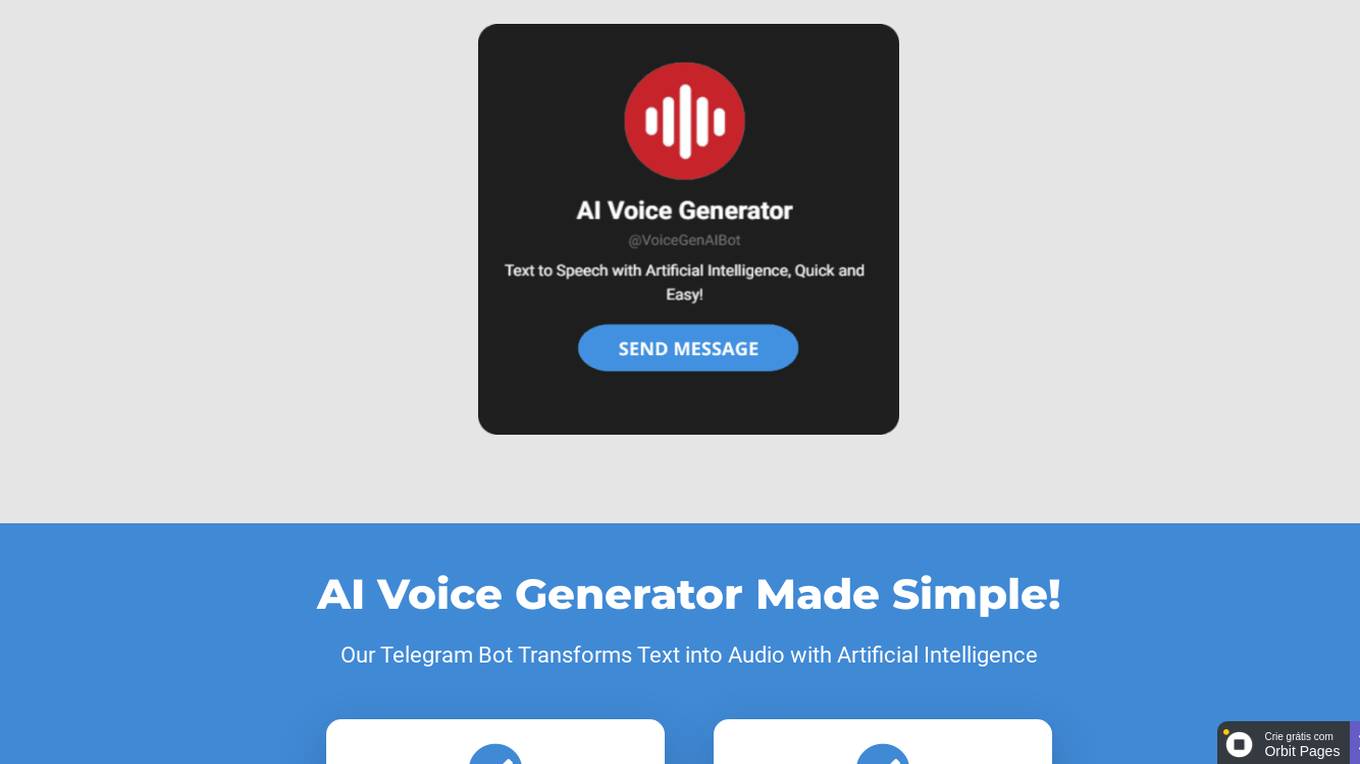
AI Voice Generator
AI Voice Generator is a Telegram bot that converts text into audio using artificial intelligence. It offers a variety of neural voices, making it easy to create natural-sounding voiceovers. The bot is simple to use, and you can generate audio in seconds.

Quizbot
Quizbot.ai is an advanced AI question generator designed to revolutionize the process of question and exam development. It offers a cutting-edge artificial intelligence system that can generate various types of questions from different sources like PDFs, Word documents, videos, images, and more. Quizbot.ai is a versatile tool that caters to multiple languages and question types, providing a personalized and engaging learning experience for users across various industries. The platform ensures scalability, flexibility, and personalized assessments, along with detailed analytics and insights to track learner performance. Quizbot.ai is secure, user-friendly, and offers a range of subscription plans to suit different needs.
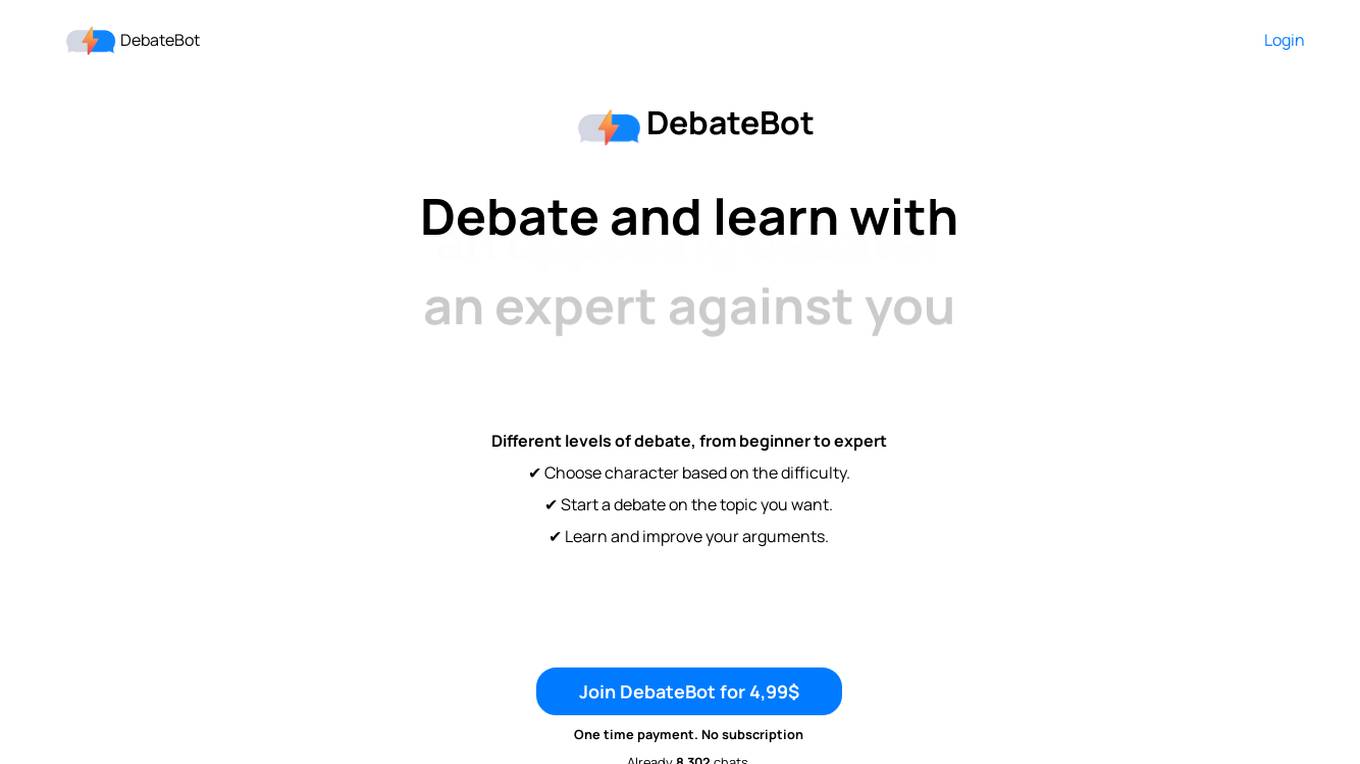
DebateBot
DebateBot is an AI-driven platform that allows users to challenge their ideas by engaging in debates with AI-powered characters. Users can choose from different levels of debate, from beginner to expert, and improve their arguments through interactive and thought-provoking discussions. The platform aims to empower individuals to become confident and effective thinkers through the power of AI-driven debate. DebateBot offers a one-time payment option of $4.99, with no subscription required, and provides users with the opportunity to engage in debates in over 45 languages.
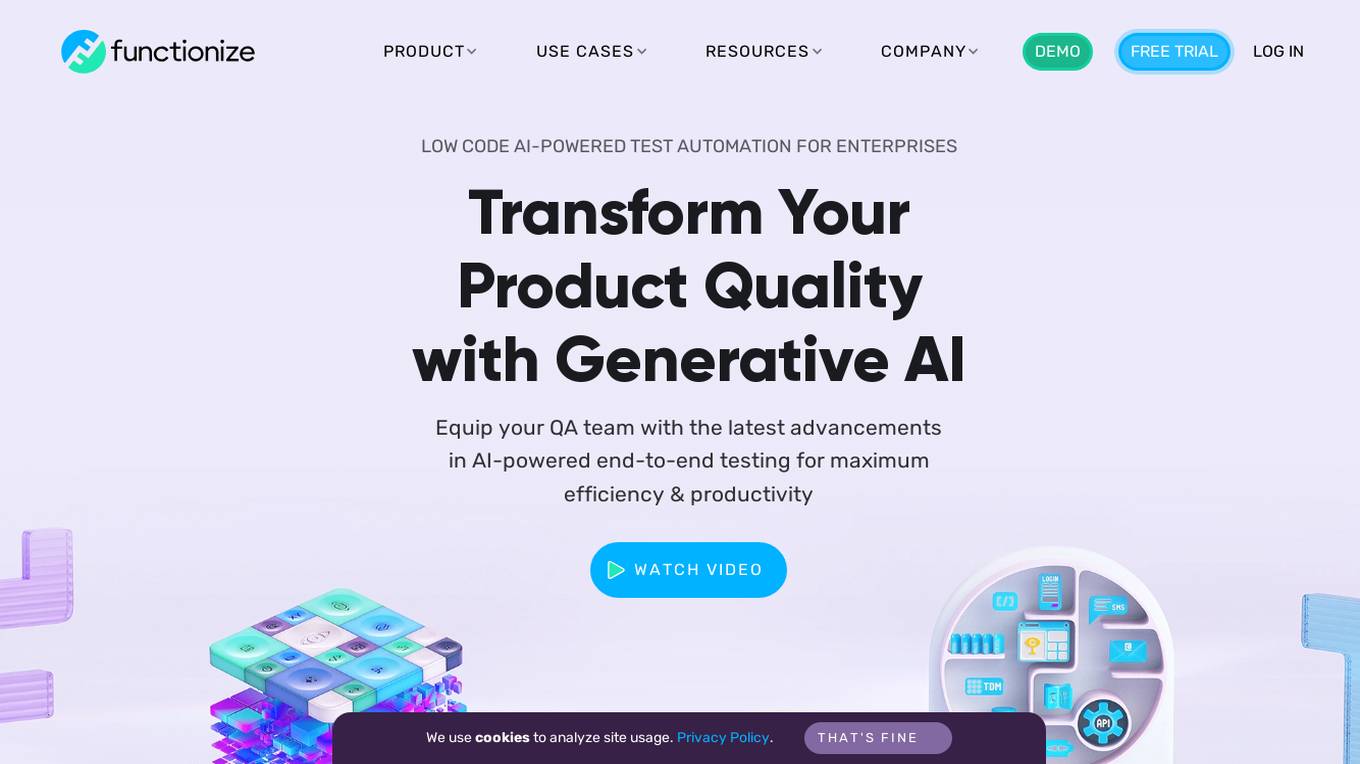
Functionize
Functionize is an AI-powered test automation platform that helps enterprises improve their product quality and release faster. It uses machine learning to automate test creation, maintenance, and execution, and provides a range of features to help teams collaborate and manage their testing process. Functionize integrates with popular CI/CD tools and DevOps pipelines, and offers a range of pricing options to suit different needs.
1 - Open Source AI Tools
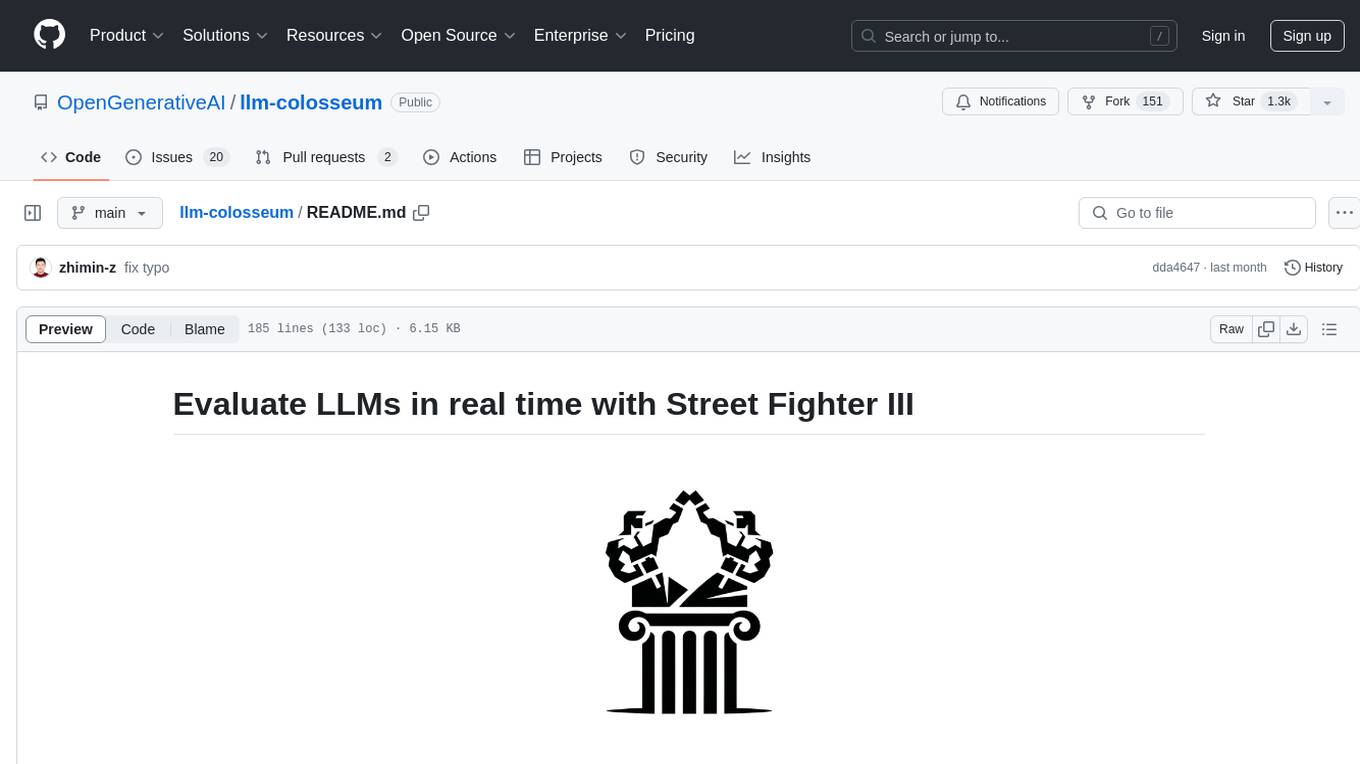
llm-colosseum
llm-colosseum is a tool designed to evaluate Language Model Models (LLMs) in real-time by making them fight each other in Street Fighter III. The tool assesses LLMs based on speed, strategic thinking, adaptability, out-of-the-box thinking, and resilience. It provides a benchmark for LLMs to understand their environment and take context-based actions. Users can analyze the performance of different LLMs through ELO rankings and win rate matrices. The tool allows users to run experiments, test different LLM models, and customize prompts for LLM interactions. It offers installation instructions, test mode options, logging configurations, and the ability to run the tool with local models. Users can also contribute their own LLM models for evaluation and ranking.
20 - OpenAI Gpts

Code de la route française - Entrainement
Entrainez-vous pour votre examen du code de la route en posant toutes sortes de questions sur différentes situations de la route.
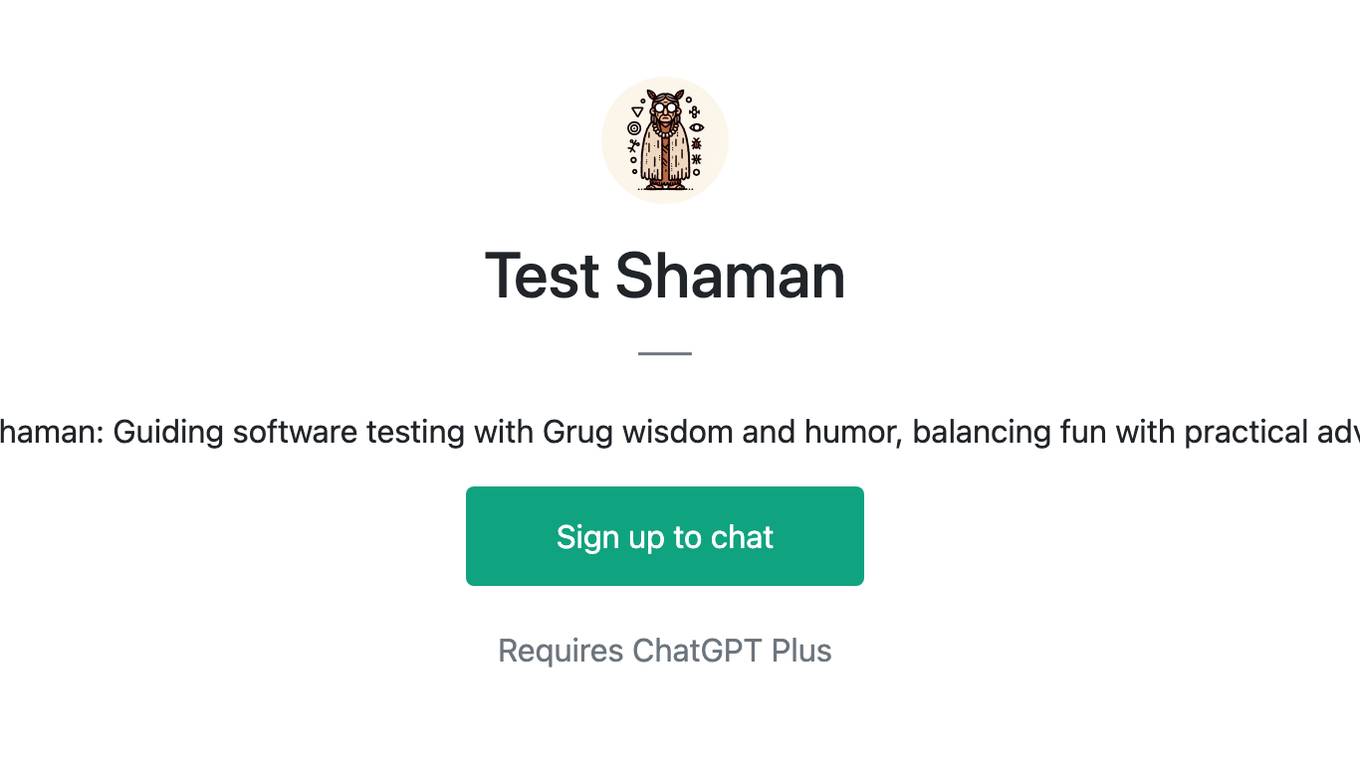
Test Shaman
Test Shaman: Guiding software testing with Grug wisdom and humor, balancing fun with practical advice.
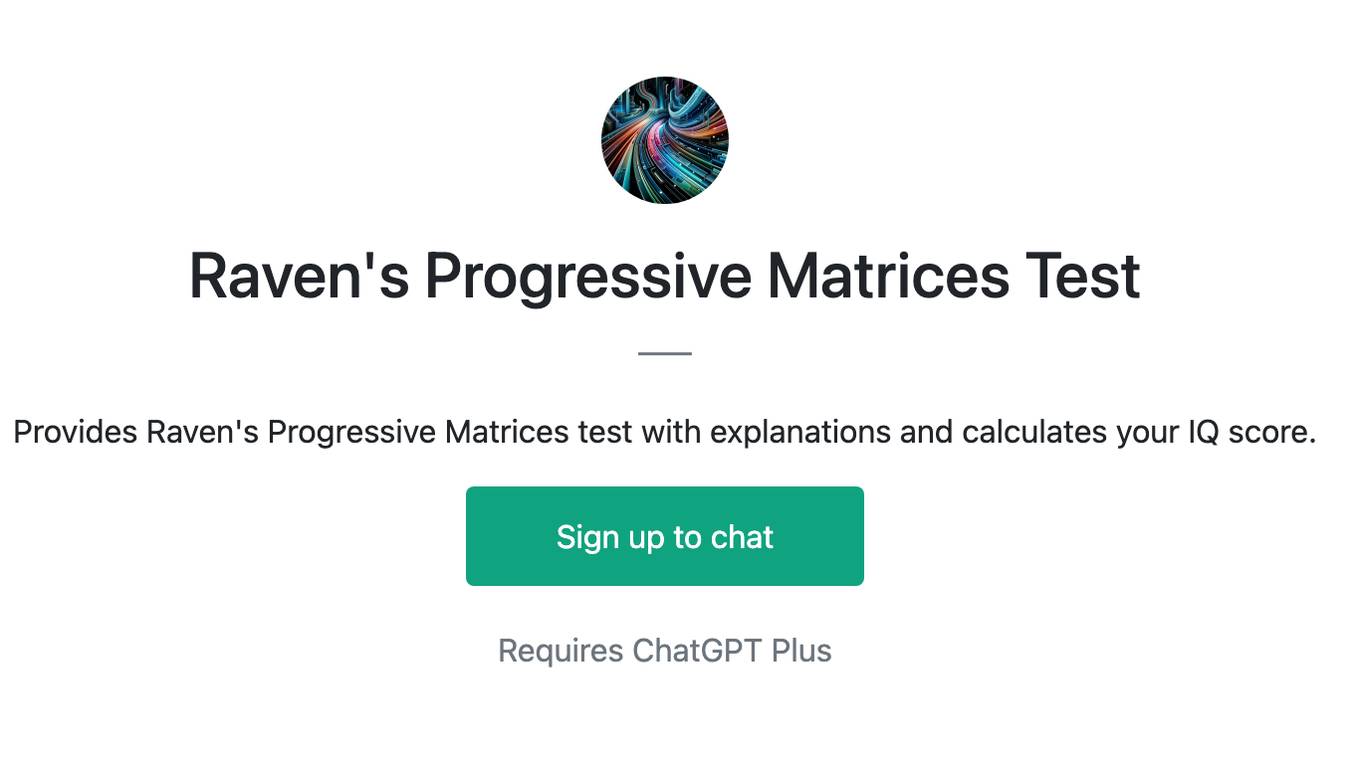
Raven's Progressive Matrices Test
Provides Raven's Progressive Matrices test with explanations and calculates your IQ score.
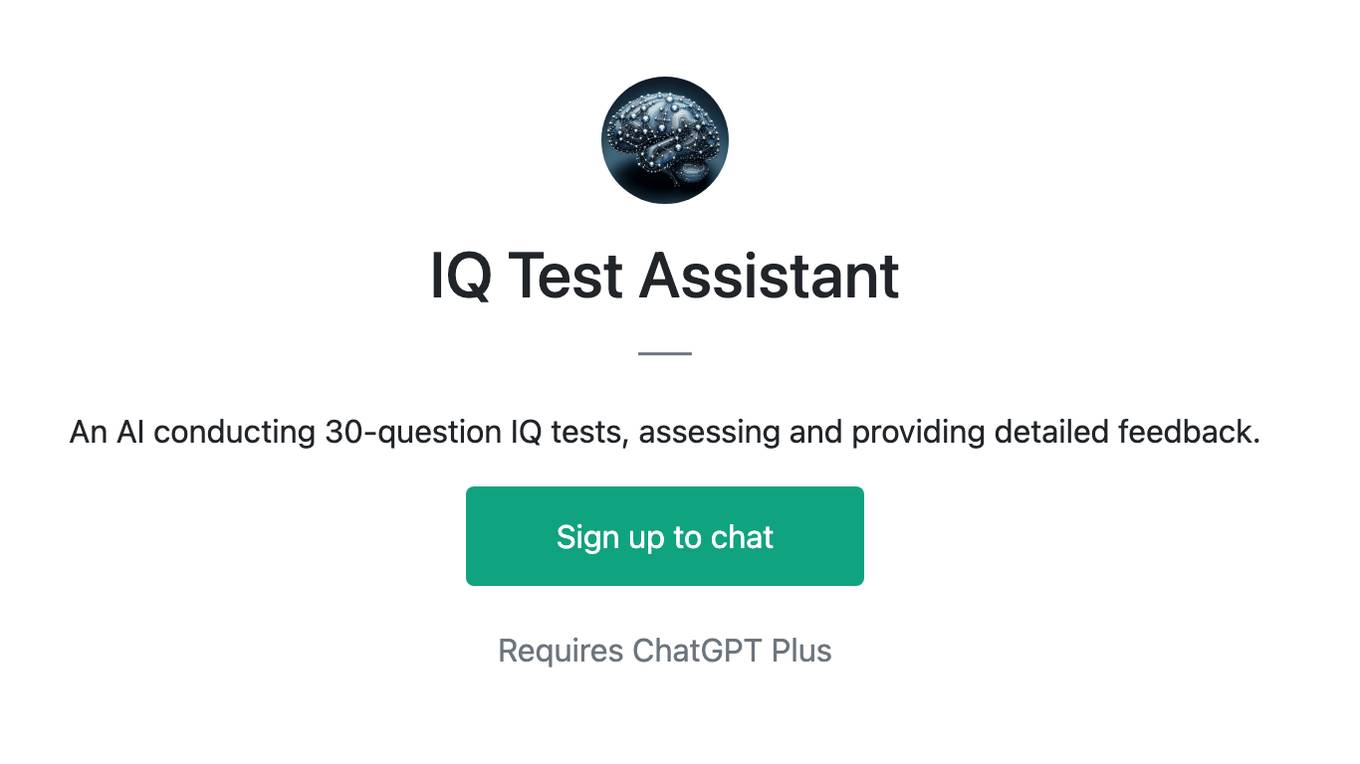
IQ Test Assistant
An AI conducting 30-question IQ tests, assessing and providing detailed feedback.
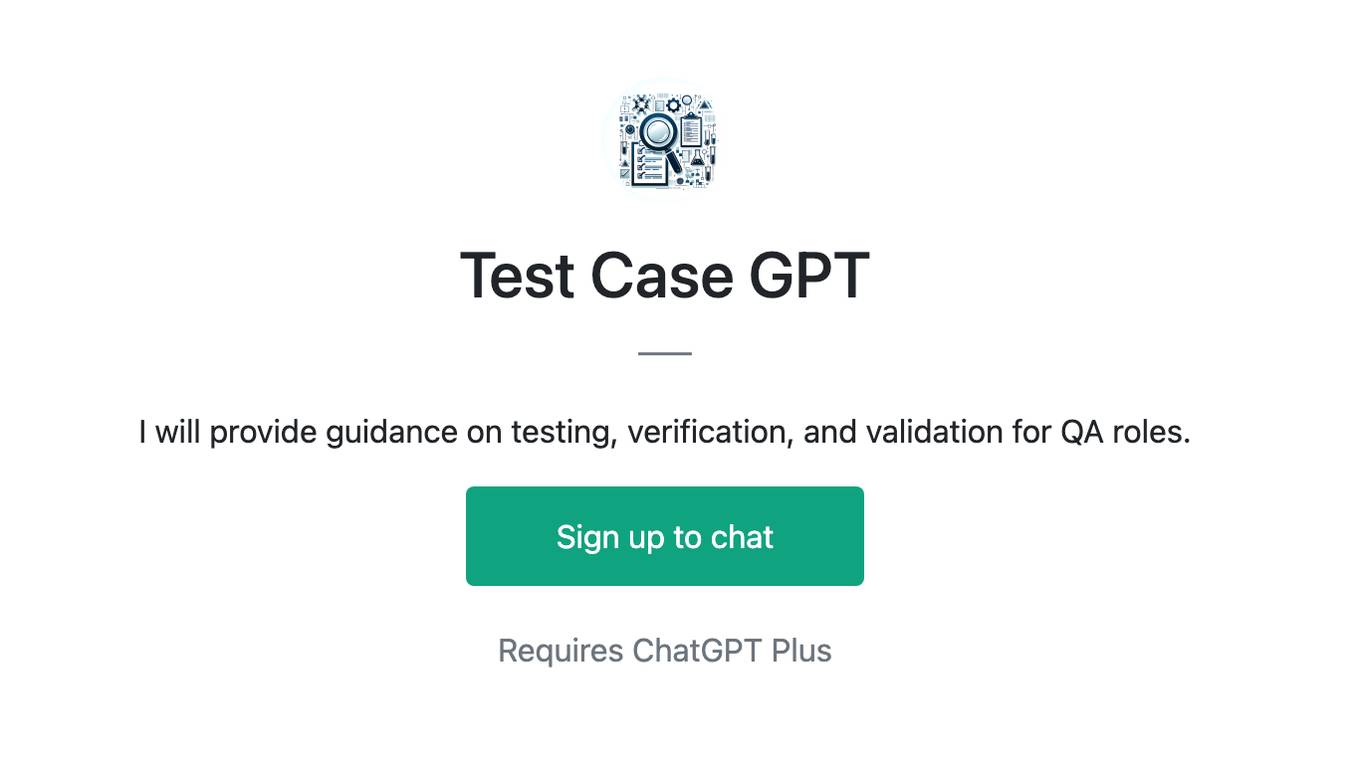
Test Case GPT
I will provide guidance on testing, verification, and validation for QA roles.
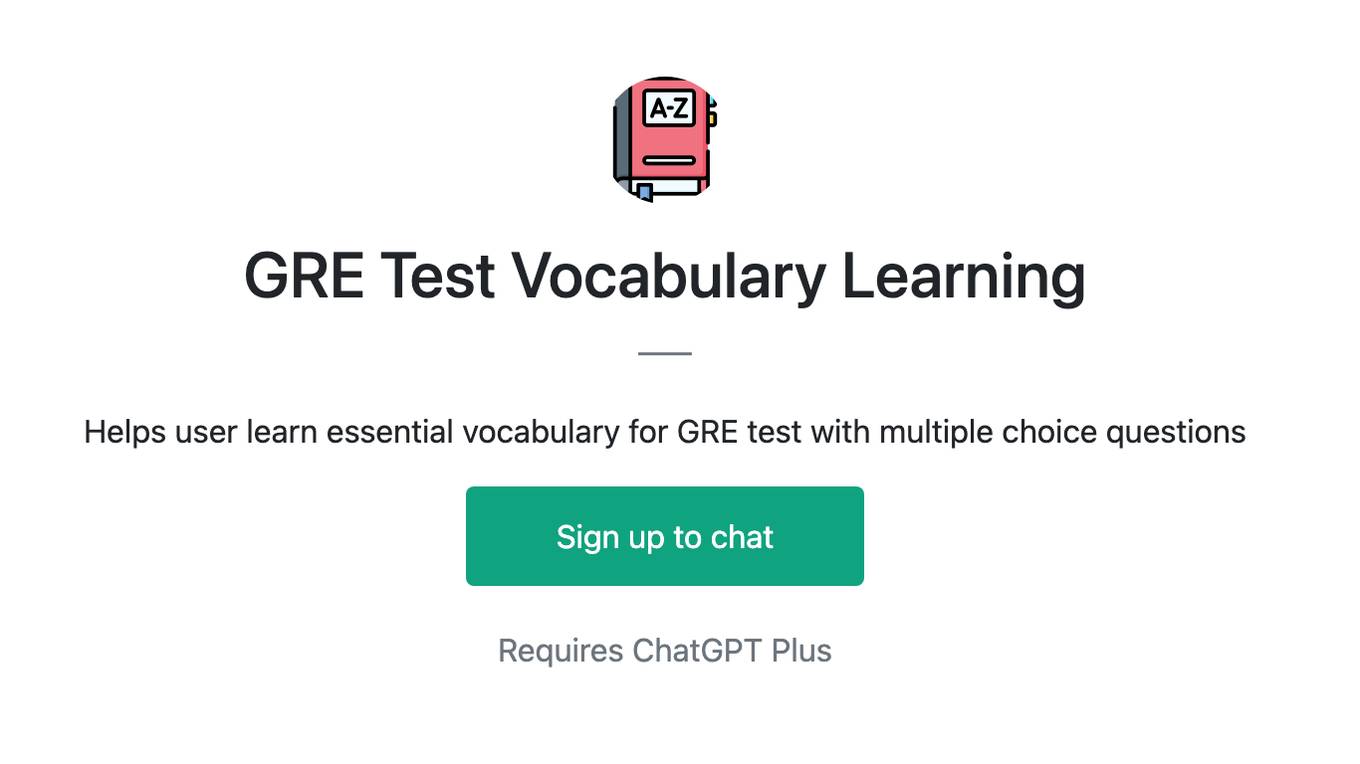
GRE Test Vocabulary Learning
Helps user learn essential vocabulary for GRE test with multiple choice questions
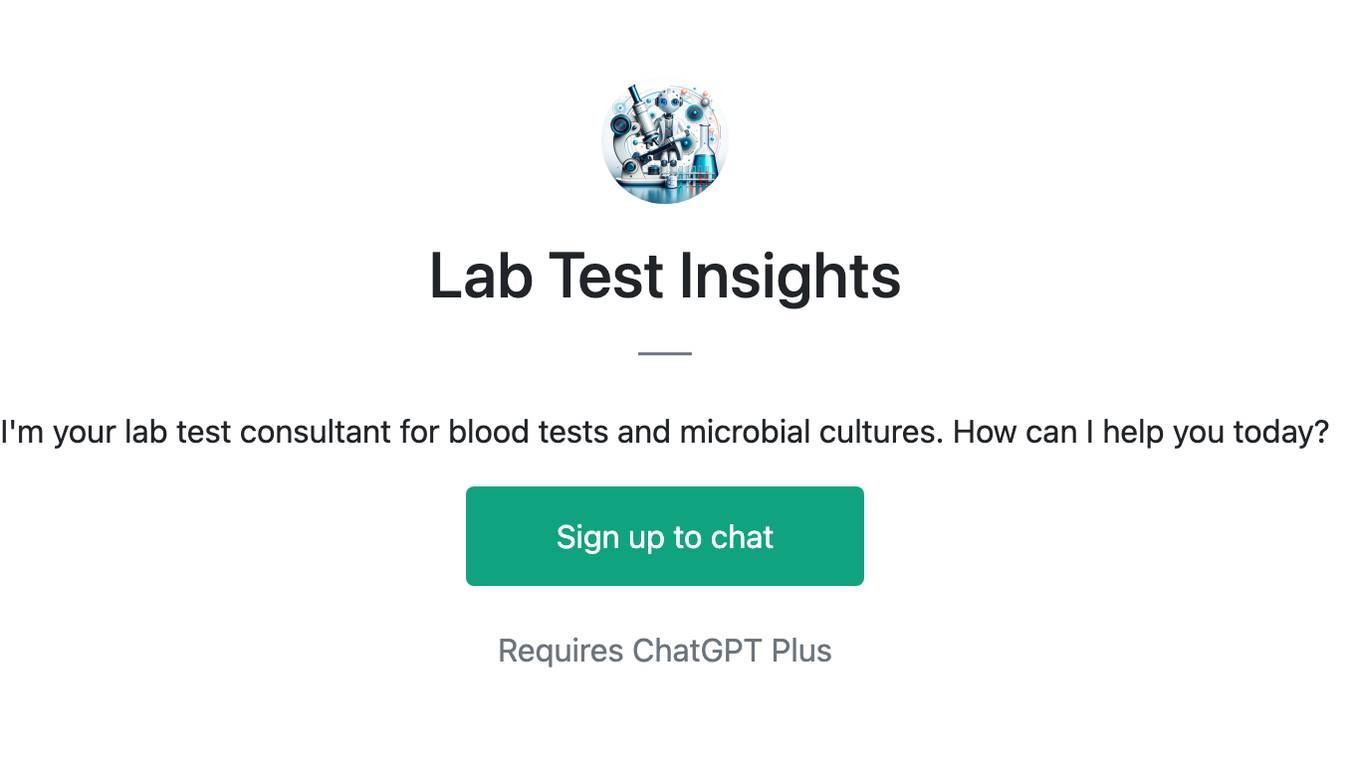
Lab Test Insights
I'm your lab test consultant for blood tests and microbial cultures. How can I help you today?

Cyber Test & CareerPrep
Helping you study for cybersecurity certifications and get the job you want!
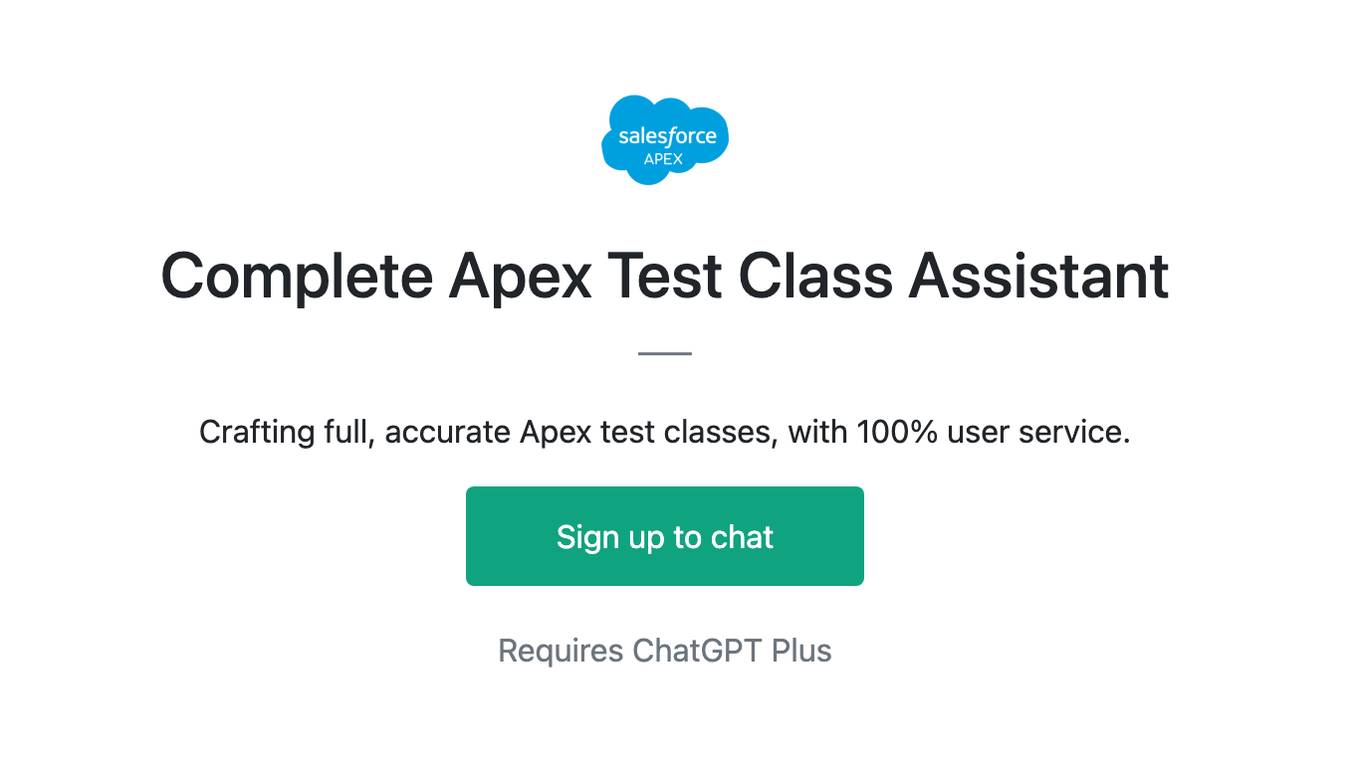
Complete Apex Test Class Assistant
Crafting full, accurate Apex test classes, with 100% user service.
